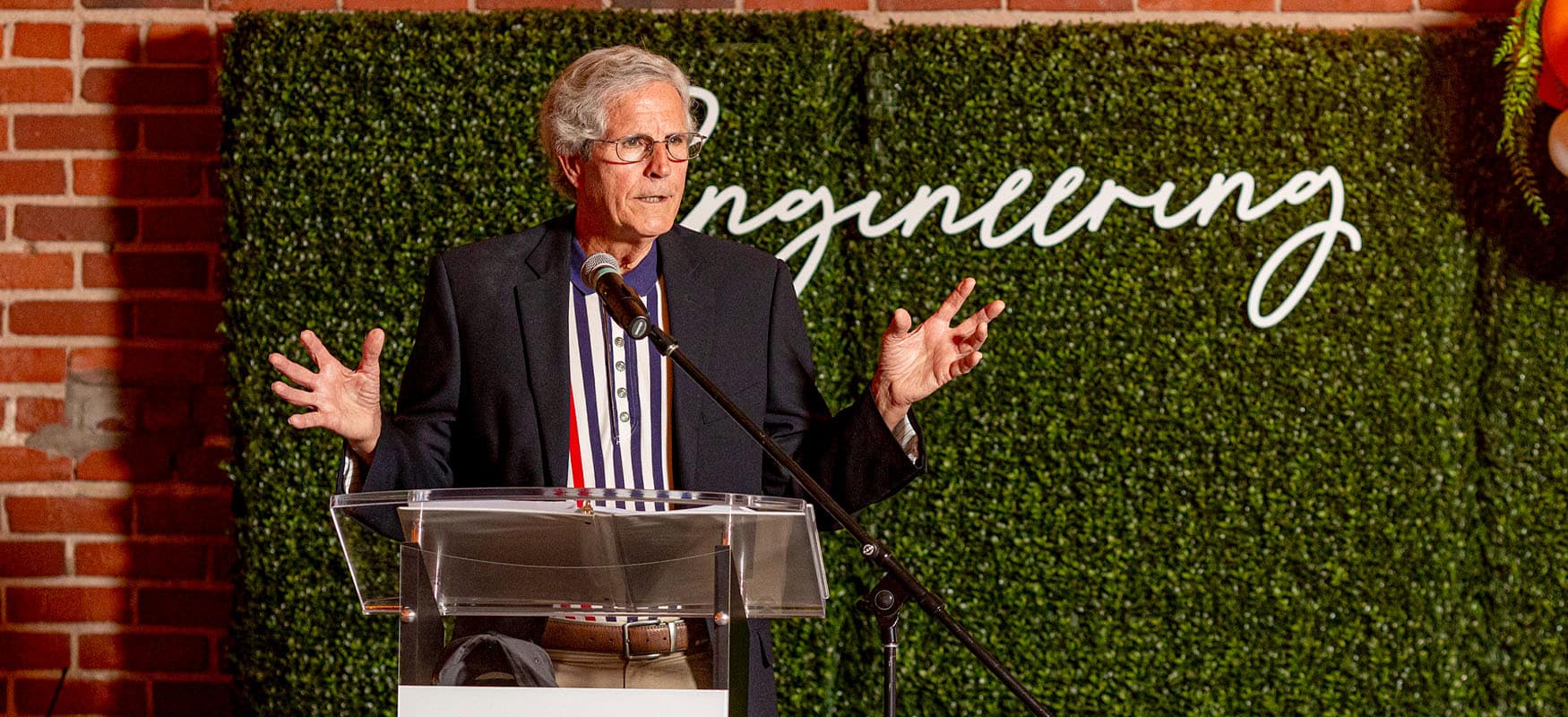
Dougherty Award Winners
Named for Nathan W. Dougherty, the award recognizes Dougherty’s success in engineering and education. It singles out those who have brought honor and distinction to the college through their achievements or who have made significant contributions to the engineering profession in Tennessee through their professional activities.
Since 1957, the Nathan W. Dougherty Award has been presented by the Tickle College of Engineering in recognition of engineers who have brought honor and distinction to the college through their achievements or who have made significant contributions to the engineering profession in Tennessee through their professional activities. Recipients of the Nathan W. Dougherty Award have established themselves as pioneering engineers—inventors, managers, researchers, professors, and leaders of industry. In their own right, each recipient’s engineering prowess has advanced the engineering profession. Collectively, however, this grouping of professionals represents an echelon of engineering achievement that is truly outstanding.
We are unable to profile the professional accomplishments of each Nathan W. Dougherty Award recipient whose passing pre-dated this posting. These individuals, however, led the way in many fields of engineering and we are pleased to acknowledge them for their extraordinary leadership as engineers, professors, administrators, and executives.
2020-Present
Ronald T. Morris (2024)
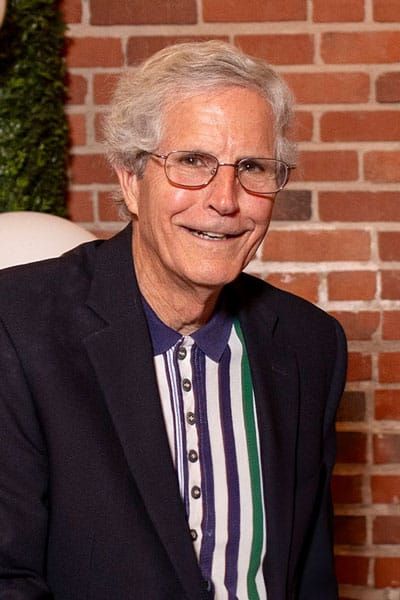
Ronald T. Morris
Consulting Engineer, DuPont Sustainable Systems
Education
- BS, Electrical Engineering, University of Tennessee, Knoxville, 1969
Ronald T. Morris never forgot how much he benefitted from his educational experience at the University of Tennessee. As soon as he retired from a long and fulfilling engineering career at DuPont, Morris was determined to give back to UT and play a more active role as an alumnus.
From serving on the college’s advisory boards to funding scholarships, Morris has ensured future generations of students will have a solid foundation for success on UT’s campus. His generosity is being recognized as the 2024 Nathan W. Dougherty Award winner, which is the highest honor bestowed by the Tickle College of Engineering.
Given annually since 1967, the Dougherty award singles out those who have “brought honor and distinction to the college through their achievements or who have made significant contributions to the engineering profession in Tennessee through their professional activities.”
Morris was informed about his selection after he returned from Thailand to escape the cold winter weather in his hometown of Memphis.
“I said I don’t deserve it. I said I am highly honored, but are you sure you want to do this?” Morris said. “I would never in my wildest dreams have thought my name would ever come up as being a potential candidate for the award, so I am flattered, and I am very humbled to receive it.”
Morris received his Bachelor of Science degree in electrical engineering from UT in 1969 and participated in the Co-op Engineering Program during school. He served in the United States Navy from 1971–74, where he was a civil engineering corps officer and obtained his professional engineer’s license while enlisted.
His professional career included time at Exxon, Southern Bell Telephone, W.R. Grace & Co., and DuPont. Morris worked at the DuPont Memphis plant for 30 years, holding positions as a project engineer, electrical and instrument maintenance supervisor, and a project manager/engineer on several large, distributed control systems projects.
He received the 2008 Engineering Excellence Award for his work on a large integrated project at a DuPont site. After retiring from DuPont, Morris worked as a consulting engineer domestically and internationally.
“My résumé doesn’t compare with the kinds of positions all the other Dougherty winners have, but that doesn’t bother me. It’s about if you have done a really good job at what you are supposed to be doing and I feel like I have,” Morris said. “I was never in search of trying to be praised, but it does feel really good that I can provide help that would be recognized.”
Morris served on the College of Engineering Board of Advisors at UT from 2013–19. He and his late wife, Jessica, established the West Tennessee Engineering Day Initiative Endowment Fund to provide chartered bus transportation, lodging, and meals for high school students from west Tennessee to attend Engineer’s Day at TCE; the Ron and Jessica Morris Endowed International Travel Fund to assist TCE students with approved internal experience; and the Ron and Jessica Morris Engineering Scholarship Endowment.
In April of 2024 at the ConNEXTion Day, the Women in Engineering Program (WiE) will be publicly named the Jessica M. Morris Women in Engineering Program in recognition of the Morris family’s significant gift for an endowment to the program.
Morris knows from personal experience how beneficial a visit to the UT campus can be for potential students. During his junior year of high school in 1963, Morris traveled to Knoxville with a group of Memphis students on a trip sponsored by a local doctor.
The doctor, a UT Health and Science Center graduate, accompanied the group to UT, driving ahead of the bus in his 1963 Studebaker Avanti.
“That is why I started sponsoring kids to come up from Memphis and west Tennessee, because of what that doctor did for us,” Morris said. “I knew how influential that trip was in me knowing I wanted to go to UT. I wanted to make sure kids today have the same chances.”
Morris’ older brother, Walton, paved the way for him to attend UT. Walton Morris was attending the General Motors Institute in Flint, Michigan, but wanted to enroll in the UT College of Engineering. He drove to Knoxville and spoke with Co-op director Wiley Thomas about his chances. Thomas told Walton his grades weren’t good enough.
Disappointed, Walton headed to his car to make the long drive to Michigan. As he reached for the door handle, Thomas stopped him and told him if he came for two quarters and kept his GPA high, he would let him enroll in the Co-op Engineering Program.
“He ended up graduating in 1963 as a mechanical engineer,” Ronald Morris said. “If he had not gone there, I probably would not be talking to you right now.”
The Dougherty award recognizes Dougherty’s success in engineering and education. Among other accolades, Dougherty was a captain of UT’s football, basketball, and track teams in the early 1900s, including helping start the first basketball team in school history.
As a faculty member and chairman of the UT Athletics board, Dougherty hired Robert Neyland as UT’s football coach, served as dean of the college from 1940–56, and served as acting SEC Commissioner in 1947. He was inducted into the College Football Hall of Fame in 1967.
Eric Zeanah (2023)
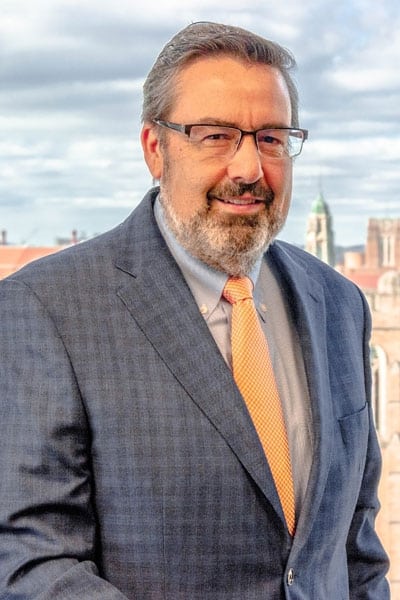
Eric Zeanah
Owner and President, American Accessories International, LLC
Education
- BS 1984 Industrial and Systems Engineering, University of Tennessee, Knoxville
Eric Zeanah (ISE, ’84) has been a long-time supporter, advocate for, and member of the Tickle College of Engineering community.
As a testament to the spirit of giving back that he and his wife Elaine (Nursing, ’82) have had across the years, the Zeanah Engineering Complex, the Jessie Rogers Zeanah Faculty Fellow, the Zeanah Student Support Fund, and the Doulet-Zeanah Student Lounge in the John D. Tickle Building all bear their name, in addition to the American Accessories International Endowed Scholarship which was created through his company.
Now, he’s being recognized for that legacy of support by being selected as the 2023 Nathan W. Dougherty Award winner, the highest honor bestowed by the college.
“This is a tremendous honor, one that has been given to some of the most noted luminaries our college has produced over the years, and I am truly humbled to have been selected,” Zeanah said. “I am most proud of the direct interactions I have been afforded with students and so grateful to be a part of this college community, proud of our past successes, pleased with our current trajectory, and excited to see what we will achieve next.”
Additional signs of the Zeanahs’ legacy can be seen in the creation of the Wayne T. Davis Dean’s Chair and in WomEngineers Day, both of which he helped champion into existence.
Even outside of the college, VOLeaders Academy, which encourages student-athletes to use their roles to change society for the better, and the Beagle Boys Endowment at the UT Veterinary Medical Center, made in honor of their dogs to help pay for costs of those who need the services of the facility but can’t afford to pay, are lasting testaments to their love of UT.
“Eric Zeanah and his wife Elaine have both been ardent supporters of their alma mater, financially, through their actions, and through their voices,” said Dean Matthew Mench, the current Wayne T. Davis Dean’s Chair. “This is a richly deserved recognition of that and of the success that Eric has had through his company.”
American Accessories International works with Fortune 500 companies, including market and brand analysis, product development, material and cost analysis, and graphic design concepts.
The Dougherty award singles out those who have “brought honor and distinction to the college through their achievements or who have made significant contributions to the engineering profession in Tennessee through their professional activities” and has been given annually since 1957.
H. Lee Martin (2022)
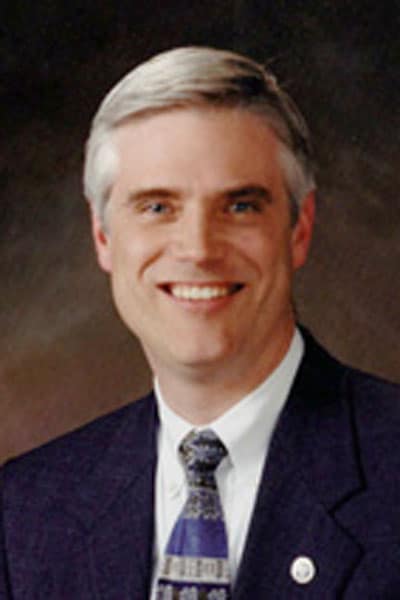
H. Lee Martin
Owner and Founder, TeleRobotics International Inc.
Professor of Practice and Director, Engineering Entrepreneurship Program, UT Tickle College of Engineering (retired)
Education
- BS 1978 Mechanical Engineering, University of Tennessee, Knoxville
- MS 1979 Mechanical Engineering, Purdue University
- PhD 1986 Mechanical Engineering, University of Tennessee, Knoxville
Department of Industrial and Systems Engineering Professor Emeritus Lee Martin first came to the University of Tennessee in 1974 to pursue his bachelor’s degree in mechanical engineering, eventually earning the highest honor a student can receive by being named a Torchbearer.
Now, he has been recognized for the highest honor an alumni can receive by being selected as the 2022 Nathan W. Dougherty Award winner.
“I’m overwhelmed by this selection, and very honored and thankful,” said Martin. “There is a lot of amazing work being done by faculty, staff, and students, so to be chosen as a recipient of this award and thus to represent them and all of our alumni is very humbling.”
He went on to earn his master’s from Purdue in 1979 before returning to UT to earn his doctorate, which he accomplished in 1986, with both degrees also in mechanical engineering.
That same year, he founded TeleRobotics, combining his knowledge of image processing with robotics. The company eventually became iPix, which Martin left in 1999.
His next venture was the Tennessee Technology Development Corporation, run under then-Governor Don Sundquist. Through it, Martin travelled the state to drum up support for new ideas and innovations with an entrepreneurial touch.
Martin’s ideas have led to several patents, public offerings, and entrepreneurial opportunities.
His success in those areas led him back to UT, where he created the Engineering Entrepreneurship Program and taught students, among other things, how to recognize and seize chances to create their own ventures.
“It has been awesome to see the college grow and expand over the years, from something that impacted the state, then the region, then the nation and the world,” said Martin. “The Tickle College of Engineering’s reach is truly global.”
Martin has stayed busy since his retirement, founding the Pavilion of Pickleball to provide opportunities for people to enjoy that sport. It has proven so successful that there is now a wait list on new members.
Recognizing Dougherty’s success in engineering and education, the award singles out those who have “brought honor and distinction to the college through their achievements or who have made significant contributions to the engineering profession in Tennessee through their professional activities” and has been given annually since 1957.
Dougherty served as dean of the college from 1940–56, was a captain of UT’s football and basketball teams as a student athlete in the early 1900s, hired Robert Neyland as UT’s football coach, and served as acting SEC Commissioner in 1947. He was inducted into the College Football Hall of Fame in 1967.
Kim Greene (2021)

Kim Greene
Chairman, President, CEO, Southern Company Gas
Education
- BS 1988, Engineering Science and Mathematics, University of Tennessee, Knoxville
- MS 1990, Biomedical Engineering, University of Alabama at Birmingham
- MBA 1996, Finance, Samford University
Kim Greene began her education at UT as an undergraduate student in 1984, majoring in what was then called engineering science and mechanics, now a part of the Department of Mechanical, Aerospace, and Biomedical Engineering (MABE).
After graduating in 1988, Greene earned a masters in biomedical engineering from the University of Alabama at Birmingham (UAB) in 1990 and an MBA in finance from Samford University in 1996. Additionally, she completed the advanced management program at Harvard Business School in 2011.
Through two stints at Southern Company—interrupted by a nearly six-year period where she joined TVA as chief financial officer, later holding additional roles including chief generation officer—Greene has served in many senior roles, including president of Southern Company Services, chief operating officer, and her current role as chairman, president, and chief executive officer for Southern Company Gas, one of the country’s largest natural gas providers, serving more than 4.3 million customers in four states.
Greene is a strong voice in the energy sector, especially on issues related to safety, emerging technologies, innovation, and STEM-related education.
She serves on the boards of directors of Valero Energy Corporation, American Gas Association, Gas Technology Institute, and Morehouse School of Medicine. In addition to her professional career, Greene has served on the advisory boards of the Tickle College of Engineering and the UAB School of Engineering. She is a member of UT’s MABE Hall of Fame, the Alabama Engineering Hall of Fame, a recipient of the UT Distinguished Alumni Award, and was named Power Gen’s 2015 Woman of the Year.
Wayne T. Davis (2020)
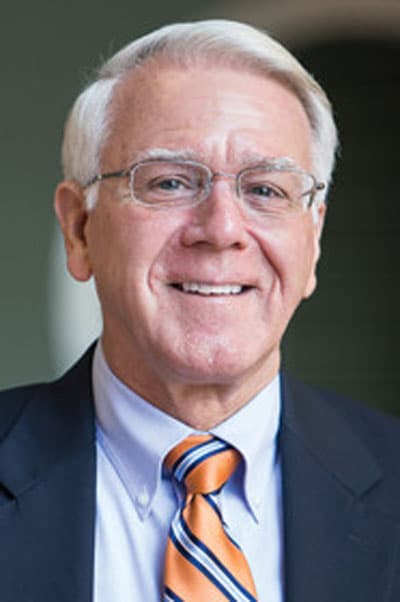
Wayne T. Davis
Interim Chancellor, The University of Tennessee, Knoxville (retired)
(Inaugural) Wayne T. Davis Dean’s Chair of Engineering, The University of Tennessee, Knoxville
Education
- BS 1969, Physics, Pfeiffer College
- MS 1971, Physics, Clemson University
- MS 1973 and PhD 1975, Civil and Environmental Engineering, The University of Tennessee, Knoxville
Wayne Davis came to UT in 1971 as a graduate student in civil and environmental engineering and stayed for almost 50 years, eventually retiring after serving as interim chancellor. Prior to becoming dean of engineering in 2008, Davis served stints as assistant dean of the Graduate School from 1985 until 1988 and as its associate dean from 1988 until 1991. He was named University Macebearer in 2003, the highest faculty honor bestowed by the university.
He was serving as the college’s associate dean for research and technology in 2008 when he filled in the dean’s position on an interim term for a year before he was asked to serve permanently. He remained as dean for 10 years until 2018 when he was asked to serve as interim chancellor before his retirement in 2019.
Under his leadership as dean, the college saw tremendous growth, including the opening of the Min H. Kao Electrical Engineering and Computer Science Building and the John D. Tickle Engineering Building, the design and beginning of construction on the new $129-million Zeanah Engineering Complex, the at- or near-doubling of undergraduate and graduate enrollment, major increases in research expenditures and the number endowed faculty positions, and the naming of the college itself.
Davis also boosted the college outside of campus, playing a key role in helping or establishing several joint centers and research programs with Oak Ridge National Laboratory, among others.
He has received research awards and recognition from the US Environmental Protection Agency, Department of Energy, Department of Transportation, the National Science Foundation, and many companies, and is a fellow of both the Air and Waste Management Association and American Society of Engineering Education and a board-certified member of the American Academy of Environmental Engineering and Science, and was recently awarded the Distinguished Alumnus Award by the national Tau Beta Pi.
Further afield, Davis was elected secretary of the Global Engineering Deans Council, served on the editorial review board for the Chinese Academy of Engineering’s journal Engineering, and was an invited speaker at a CAE-sponsored conference in China.
2010-2019
Ralph D. Heath (2019)
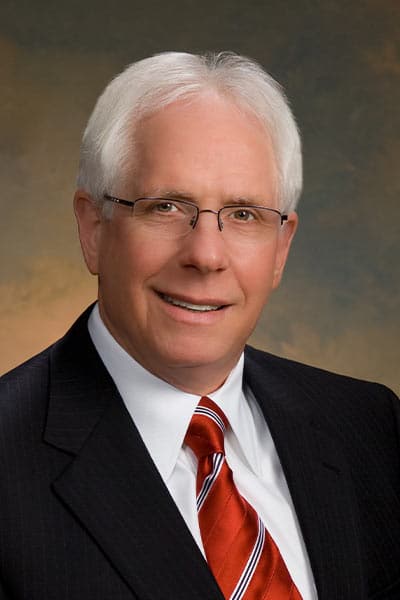
Ralph D. Heath
President, Lockheed Martin (retired)
Education
- BS 1970, Electrical Engineering, the University of Tennessee, Knoxville
- MBA 1975, the University of Tennessee, Knoxville
Ralph D. Heath is a recognized leader in the aerospace and defense industry, having concluded a nearly 40-year career at Lockheed Martin. He held a wide range of positions in design, development, production, and sustainment. He was president of Lockheed’s Aeronautics Company for seven years, a $15 billion business with 26,000 employees spread across nine locations. Products included the F-16, F-22, and F-35 fighters, the C-130 and C-5 transports, and both manned and unmanned reconnaissance aircraft.
Heath was a leader in international business, personally engaging in more than 30 countries in Europe, the Middle East, Asia, South America, and the Pacific Rim. He led the company’s transition into process-based management and was an agent of change throughout his career.
Heath is a member of boards of the Textron Corporation and the Smithsonian National Air and Space Museum. He also serves on the advisory boards of the University of Tennessee’s Tickle College of Engineering and Haslam College of Business.
Heath is an American Institute of Aeronautics and Astronautics (AIAA) Fellow and was the recipient of the 2005 Reed Aerospace Award. He was named the National Management Association Executive of the Year in 2007.
An Army veteran, Heath served nearly four years on active duty and was qualified as an airborne ranger. He holds a bachelor of science in electrical engineering and an MBA from the University of Tennessee, and an FAA commercial pilot’s license.
Leslie Benmark (2018)
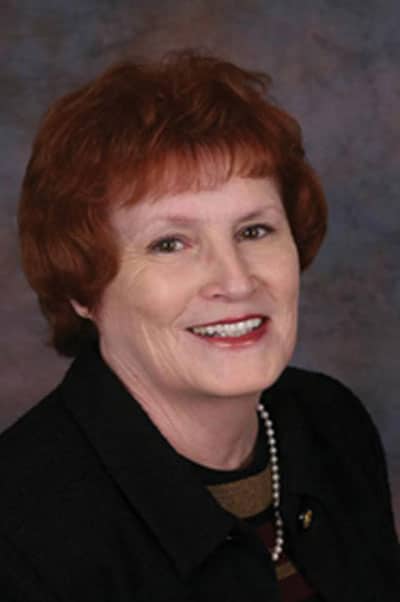
Leslie Benmark
Six Sigma Black Belt for DuPont (retired)
Education
- BS 1967, Industrial Engineering, the University of Tennessee, Knoxville
- MS 1970, Industrial Engineering, the University of Tennessee, Knoxville
- PhD 1976, Information Systems, Vanderbilt University
- JD 1984, the University of Delaware
Leslie Benmark has enjoyed a long and successful career as an engineer and corporate leader in public service since graduating from the University of Tennessee.
She worked for 37 years with the DuPont Company in Old Hickory, Tennessee, and at its corporate headquarters in Wilmington, Delaware. As Six Sigma Black Belt for DuPont, Benmark was responsible for identifying and implementing customer satisfaction and productivity improvement projects. Prior to the Six Sigma assignment, she was the IT&S corporate quality manager, leading managing processes between DuPont and its IT Alliance partners, Computer Sciences Cooperation and Accenture.
Benmark’s other positions at both the corporate and plant levels included planning manager and executive consultant for the Global Services Business, supply chain systems manager, Dacron®/Qiana® financial business manager, plant planning and cost supervisor, plant industrial engineering supervisor, plant engineering design supervisor, systems analysis supervisor, and computer systems analyst.
Benmark was born in Illinois during World War II. Her family moved around following the war, finally settling in Lawrenceburg, Tennessee, where she lived until starting college at UT. She received numerous job offers after receiving her bachelor’s degree in 1967, and accepted a position at the Monsanto Company in St. Louis, Missouri.
When she became engaged to her future husband, Gary Benmark, the couple moved back to Tennessee. She had received an offer from the DuPont Company at the manufacturing facility near Nashville after graduation. When she inquired with the company to see if the job was still open, she found that it was. She earned her master’s degree while working there, and later a PhD from Vanderbilt.
Benmark was inducted into the elite National Academy of Engineering (NAE) in 1993, in two areas: Industrial, Manufacturing, and Operational Systems Engineering and Computer Science and Engineering. At the time that she was inducted into NAE, there were only twenty-seven female members. In comparison, the membership in 2015 included one hundred and twenty-eight women.
Benmark was also the president of the Accreditation Board for Engineering and Technology (ABET) in 1990–91, the first female president of this organization in sixty-six years. She was also the Directorate for Engineering Advisory and Chair for Presidential Faculty Fellow selection and the Engineering Education Coalition Selection Panels for the National Science Foundation; she served on the Manufacturing Studies Board for the National Research Council; was a member of the US delegation of the US Council for International Engineering Practice, charged with defining inter-country engineering professional licensing requirements between the US, Canada, and Mexico; and served as the Group Vice President for Professional Enhancement, on the board of directors, and in many other positions with the Institute for Industrial Engineers.
In addition to her work and activities as a professional engineer, Benmark has also been extensively involved with the Civitan organization, including serving a term on the International Board.
Edwin G. Burdette (2017)
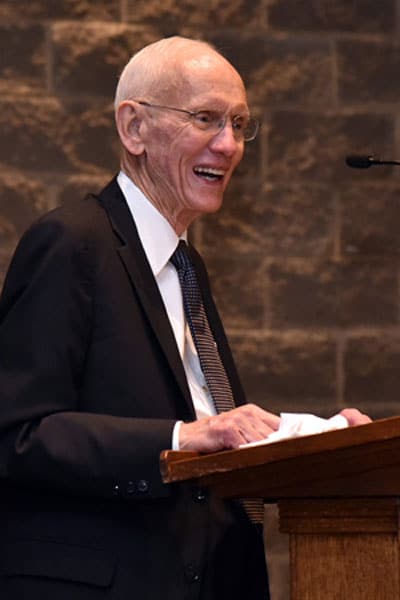
Edwin G. Burdette
(1934-2018)
Professor Emeritus of civil and environmental engineering
Education
- BS 1957, Agricultural Engineering, the University of Tennessee, Knoxville
- MS 1961, Civil Engineering, the University of Tennessee, Knoxville
- PhD 1969, Civil & Structural Engineering, the University of Illinois, Urbana-Champaign
Born on a farm outside of Martin, Tennessee, Ed Burdette attended the University of Tennessee at Martin for two years and transferred to UT Knoxville in the fall of 1954. He worked co-op while at Knoxville and graduated in agricultural engineering in March 1957. He and Patsy Hill were married one week after graduation, March 23, 1957. Both returned to UT Knoxville in the fall of 1958, and Ed became an instructor in civil engineering, receiving his MS degree in civil engineering in June 1961, three months after their first of five children was born. He was named assistant professor of civil engineering beginning September 1961.
In August 1965, he enrolled in the graduate program at the University of Illinois in Urbana-Champaign and received his PhD in civil/structural engineering in February 1969. He returned to UT on February 1, 1969, and remained on the faculty until his retirement in 2016, holding the rank of professor since 1974. Burdette’s research has been primarily in two areas: field testing of highway bridges for the Tennessee Department of Transportation (TDOT) and testing anchors in concrete to support TVA’s nuclear power program. For the work in bridge testing, he and David Goodpasture received the K.B. Woods Award from the National Academy of Science for Best Paper in Design and Construction at the 1972 meeting of the Highway Research Board. Then, in 1984, based primarily on his work in the area of anchor testing, he was named a Chancellor’s Research Scholar at the University Honors Banquet.
Burdette’s primary interest throughout his long career was teaching. He has received numerous teaching awards in the department, college, and university, being named an Engineering College Teaching Fellow twice. On two occasions he received Alumni Outstanding Teaching Awards, and in 2001, he received the University’s Alexander Prize.
Among numerous meaningful honors, Burdette cites five which were particularly meaningful: (1) being granted the first Fred Peebles Professorship in 1981, a title that he held until his retirement in 2016; (2) in 1991, being named University Macebearer, the university’s highest honor; (3) having a Fellowship created in his honor in 1994 by former student Ted Winstead and wife Linda, the Edwin G. and Patsy H. Burdette Fellowship in Structural Engineering, which has grown in value to allow partial support of several graduate students each year; (4) In 2011, having a lab in the new John D. Tickle Engineering Building named in his honor through donations made by several former students and Dayakar and Marie Penumadu; and (5) in 2015, the establishment of the Edwin G. Burdette Professorship in Civil Engineering by virtue of a generous gift from former student Charley Hodges and his wife Lynn.
Burdette’s last day on the faculty was July 31, 2016, more than fifty years after becoming a member of that faculty. He looks back on a career touched and helped by many people, too many to name. But one person stands above all the rest: his wife, Patsy, who not only played the major role in raising their five children, but also through her insistence on striving to be the best one could be. This attitude served as both inspiration and motivation throughout his long career. The impact of Burdette’s presence at UT is deep and unmistakable.
Hashem M. Hashemian (2016)

Hashem M. Hashemian
President and Chief Executive Officer, Analysis and Measurement Services Corporation (AMS)
Education
- MS 1977 Nuclear Engineering, the University of Tennessee, Knoxville
- DEng 2008 Electrical Engineering, Lamar University
- PhD 2009 Nuclear Engineering/Applied Physics, Chalmers University of Technology (Sweden)
- PhD 2011 Electrical and Computer Engineering, Western University (Canada)
H.M. Hashemian is a University of Tennessee Tickle College of Engineering alumnus and the President and Chief Executive Officer of Analysis and Measurement Services Corporation (AMS), a nuclear engineering consulting firm headquartered in Knoxville, Tennessee, and operating in the United States, Europe, and Asia.
Hashemian’s technical and operational vision and leadership has enabled AMS to play a key role in ensuring the safe and cost-efficient operation of virtually every US nuclear power plant, as well as many in Europe and Asia, through the development and application of industry-leading instrumentation and control testing and analysis equipment and services.
A globally recognized expert who lectures frequently in nuclear power plant instrumentation and control areas, Hashemian holds a PhD in nuclear engineering, a Doctor of Engineering degree in electrical engineering, and a PhD in computer engineering. He has worked for the nuclear, aerospace, and other industries, as well as the US government, including the Nuclear Regulatory Commission, Department of Energy, Department of Defense, Air Force, Navy, and the National Aeronautics and Space Administration.
Hashemian is the author of three books: Sensor Performance and Reliability (ISA, 2005), Maintenance of Process Instrumentation in Nuclear Power Plants (Springer Verlag, 2006), and Monitoring and Measuring I&C Performance in Nuclear Power Plants (ISA, 2014). His books have been translated into Chinese, Japanese, Korean, and Russian. In addition, he is the author or co-author of twenty US patents (fourteen awarded and six pending) and has written more than three hundred papers and reports. This includes seventy peer-reviewed journal and magazine articles, over two hundred conference papers, nine book chapters, and numerous reports, guideline documents, and standards for the US Nuclear Regulatory Commission (NRC), the Electric Power Research Institute (EPRI), the International Atomic Energy Agency (IAEA), the International Electrotechnical Commission (IEC), and the International Society of Automation (ISA).
Hashemian is a Fellow of the American Nuclear Society (ANS), a Fellow of the International Society of Automation (ISA), a Fellow of the International Society of Engineering Asset Management (ISEAM), a Senior Member of the Institute of Electrical and Electronics Engineers (IEEE), as well as a member of the European Nuclear Society (ENS). He has served as a keynote speaker, chairman, and co-chairman of numerous national and international conferences and committees.
James B. Porter, Jr. (2015)
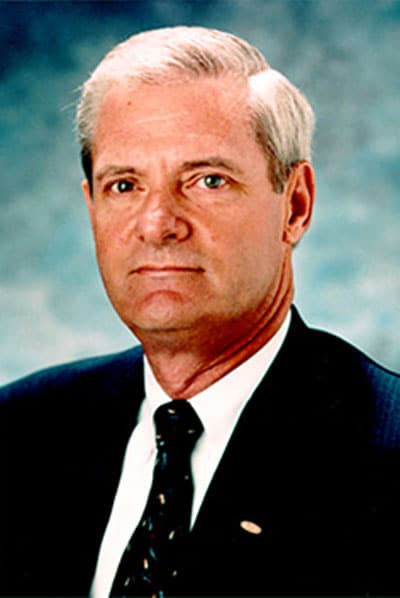
James B. Porter, Jr.
Founder/President, Sustainable Operations Solutions, LLC
Chief Engineer and Vice President, Engineering and Operations, DuPont (retired)
Education
- BS 1965, Chemical Engineering, the University of Tennessee, Knoxville
James B. Porter, Jr., graduated from the University of Tennessee in 1965. In 1966, Mr. Porter joined DuPont and remained with the company, aside from a stint in the US Army, until retiring in 2008 as the company’s Vice President for Engineering and Operations.
In addition to his work with DuPont, Porter served on the college’s Board of Advisors—including as its president—as the chairperson for the Construction Industry Institute and the of United Negro College Fund of Delaware, and on the boards of the American Institute of Chemical Engineers, FIATECH, the Mascaro Sustainability Initiative, the Argonne National Laboratory and the Fieldbus Foundation, as well as the advisory board of AIChE’s Center for Chemical Process Safety.
He received FIATECH’s inaugural award for technology leadership in 2008, which was named in his honor, as well as the 2007 Society of Women Engineers Rodney D. Chipp Memorial Award, the 2005 Engineering and Construction Contracting Association Achievement Award, and CII’s 2004 Carroll H. Dunn Award of Excellence.
Porter currently serves as founder and president of Sustainable Operations Solutions, which helps promote safer, more efficient, more productive work environments.
A native of Knoxville, he and his wife, Deborah Grubbe, have one daughter, Alyson.
W. Dwight Kessel (2014)
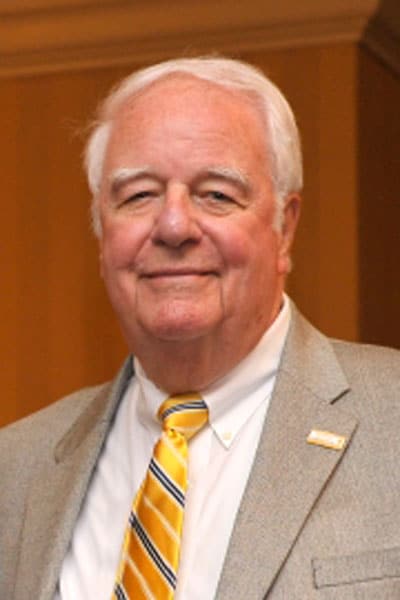
W. Dwight Kessel
Knox County Executive (retired)
Education
- BS 1950, Industrial Engineering, the University of Tennessee, Knoxville
W. Dwight Kessel received the Nathan W. Dougherty Award in 2014 in recognition of his achievements and contributions to Tennessee. He has supported key Tickle College of Engineering decisions and stood as an advocate for the college.
After a three and a half year stint in the Navy during WWII, he came to UT, graduating in 1950 with a BS in industrial engineering. After working as an Engineer (1950-1963), he entered political office as a Knoxville City Councilman (1963-1966), as Knox County Clerk (1966-1980), and served as the first Knox County Executive (now County Mayor) from 1980-1994.
His various business interests have included real estate investments; the conversion of the Farragut Hotel into office space; Chapman Drug Company, which he built into a multi-state chain; and the startup of one of the nation’s first local Internet companies: U.S. Internet.
His community involvement includes time with the Boy Scouts of America, the Greater Knoxville Chamber of Commerce, the Girls Club, Knox County Health Council, Development Corporation of Knox County, Juvenile Court Advisory Board, East Tennessee Foundation, and many more. He also has been a member of the West Knoxville Kiwanis Club for sixty years and was a board member of the Fairview Technology Center and the Tennessee Center for Research and Development. He was a member of the 1982 Knoxville Expo World’s Fair board of directors, an advisory board member of the Knoxville College President’s Roundtable, and a member of the East Tennessee Minority Purchasing Council, Inc. board.
Due to his commitment to the Knoxville community, several buildings have been named after Kessel, including the Wallace Dwight Kessel Girls Club Gymnasium, Dwight Kessel Pavilion, Dwight Kessel Metropolitan Parking Garage, and the Dwight and Gloria Kessel Auditorium in the Science and Engineering Research Facility at UT.
He has been extensively involved with the UT National Alumni Association, serving as treasurer, secretary, vice president, and president as well as participating as a member of the scholarship committee. He also served on the UT Tickle College of Engineering Board of Advisors, and was a previous chairman of the UT Chancellor’s Associates and the UT Development Council.
In 2013, he received the UT’s prestigious Alumni Service Award.
John D. Tickle (2013)
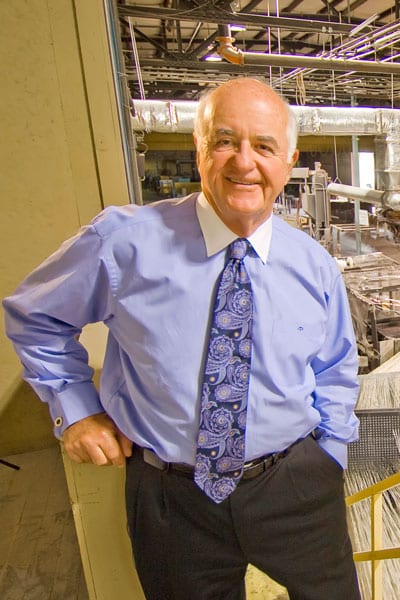
John D. Tickle
Chairman, Strongwell
Education
- BS 1965, Industrial Engineering, the University of Tennessee, Knoxville
John D. Tickle (BS/IE ’65) is the owner and chairman of Strongwell Corporation, headquartered in Bristol, Virginia.
He received his bachelor’s degree in industrial engineering in 1965 from the University of Tennessee. He served in positions with Owens Corning Tech Center, Justin Enterprises, and Krueger Metal Products before returning to his hometown of Bristol to assume the presidency of Morrison Molded Fiber Glass Company (MMFG). Mr. Tickle stayed with MMFG after its acquisition by Shell in 1985.
In 1997, Mr. Tickle renamed the company Strongwell and began developing the technology that has made it a world-wide leader in pultrusion manufacturing, with the Bristol division serving as Strongwell’s largest facility and corporate headquarters.
The materials manufactured at Strongwell can be found around the world in high-end construction. If you have been to a resort on the ocean, there is a good chance the railings and fittings are made from Strongwell product–they don’t corrode in the salt air and look beautiful. If you own one of the orange ladders commonly sold at local home improvement stores, that’s Strongwell material.
Mr. Tickle has also been the recipient of a host of local, regional, and national business and philanthropic awards, including receiving the UT Distinguished Alumni Award (with his wife, Ann); having the Mall at Bristol Regional Medical Center named for him in 2004; being named a Laureate in the Junior Achievements Business Hall of Fame in 2000; Virginia Chamber of Commerce Torchbearer Award for Western Virginia in 1999; and the Bristol Regional Hospital Chairman from 1987 to 1992.
Mr. Tickle, who earned the rank of Eagle Scout, received the Heroism Award from the National Court of Honor of the Boy Scouts of America in June 2012. He also recently received the 2013 ACMA Lifetime Achievement Award from the American Composites Manufacturers Association (ACMA), the industry’s largest trade group in the world.
Anthony R. Buhl (2012)
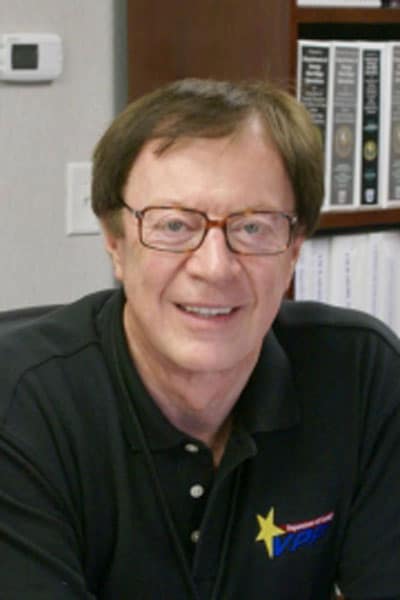
Anthony R. Buhl
President/CEO, EnergX LLC
Education
- BS 1963 Nuclear Engineering, the University of Tennessee, Knoxville
- MS 1964 Engineering Science, the University of Tennessee, Knoxville
- PhD 1967 Engineering Science, the University of Tennessee, Knoxville
Anthony (Tony) R. Buhl was born and grew up ten miles outside of nearby Clinton, Tennessee. He was the youngest of eight children in a family that lived in a two-room house. No one in the area had gone to high school, much less college, and Buhl changed everything.
At the Southern Appalachian Science Fair which Buhl participated in at his high school, Buhl met Pete Pasqua and Isbell Tipton (both UT professors co-chairing the science fair). Pasqua suggested Buhl think about a career in engineering, which he ultimately followed through on.
During his senior year, Buhl’s high school chemistry teacher suggested that he should apply for scholarships at the University of Tennessee. Although Buhl knew little about higher education, he applied for the scholarship, got it, and enrolled at UT in the Nuclear Engineering Department.
Buhl received his BS, MS, and PhD degrees, all in nuclear engineering and engineering science, from UT. He then enlisted in the Army, where he was commissioned as an officer upon receiving his bachelor’s degree and served active duty as a captain. After his military service, Buhl went to work as an Instrumentation and Controls Engineer at ORNL for three years.
Buhl later served as a senior executive at both the DOE and the Nuclear Regulatory Commission (NRC) and was the first Director of Risk Assessment at NRC. He has led many complex independent oversight assessments of high-risk projects and activities that led to major safety culture modifications.
Buhl led many successful turnarounds of major projects and organizations, with special emphasis on facilitating changes in their safety cultures. He served as the corporate site-wide ESH&Q Vice President at Rocky Flats and Hanford, two large high-risk DOE closure sites; as president and CEO of a public company that provided management consulting, engineering, and software development; and as CEO of a private company that offered environmental restoration and risk assessment products and services. In addition, Buhl was in the control room throughout the recovery from the accident at the Three Mile Island (TMI) power plant in Harrisburg, PA in 1979.
During the years following the TMI incident, Buhl managed the Industry Degraded Core Rulemaking (IDCOR) Program, the power industry’s response to the accident at TMI. IDCOR established comprehensive, integrated, well-documented and technically sound positions on all issues related to severe accidents in commercial nuclear power plants and thus provided the basis for industry participation in their resolution. Buhl served as the industry spokesman with the NRC to resolve severe accident issues. In all, Buhl has traveled to 39 countries in relation to nuclear safety issues.
In 1997, Buhl co-founded EnergX, LLC, based in Oak Ridge, which provides solutions in hazardous and radioactive waste management, environmental services, and energy technology to the DOE and electric utilities. He is still president and CEO of EnergX, and looks forward to further development within his company.
The American Nuclear Society elected Buhl as a Fellow for his special expertise in nuclear safety and risk assessment. He is also a Professional Engineer (PE).
Terry Douglass (2011)
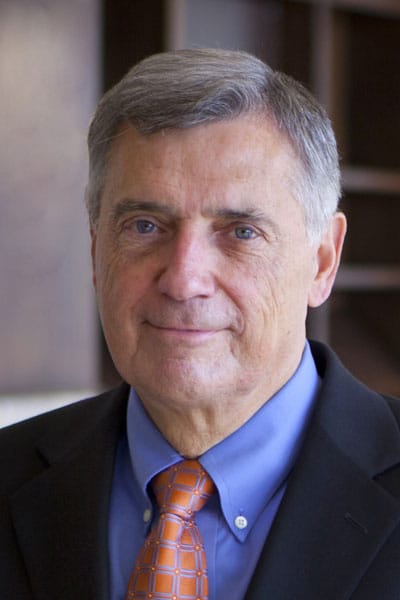
Terry Douglass
CEO, ProNova Solutions, LLC
Chairman, Provision Center for Proton Thearpy
President, ProVision Healthcare, LLC
President, Provision Trust, Inc.
Founder, ProVision Foundation
Education
- BS 1965 Electrical Engineering, the University of Tennessee, Knoxville
- MS 1966 Electrical Engineering, the University of Tennessee, Knoxville
- PhD 1967 Electrical Engineering, the University of Tennessee, Knoxville
Terry Douglass received all 3 degrees in electrical engineering from UT. One of the four cofounders of CTI Molecular Imaging, Inc., Douglass served as Chairman of the Board starting in 1983 for the public company that specialized in the development, production, and distribution of products and services for the medical diagnostic imaging market. Douglass held this position until 2005 when CTI was acquired by Siemens. Douglass also served as president and CEO of CTI from its formation in 1983 until 2003.
During his years at CTI, Douglass played an integral role in the development and commercialization of positron emission tomography (PET) technology and was instrumental in the development of Medicare reimbursement for PET services.
Moving to ProVision, Douglass helped spearhead the company’s primary initiative in healthcare is the development of a world-class cancer care capability, named Provision Health Alliance at Dowell Springs, that will include proton therapy capability and most all other diagnostic and treatment modalities for cancer care. There are only 9 proton therapy centers across the country.
Douglass founded ProNova in 2005. ProNova develops optimal solutions for the needs of the proton market through collaboration with established proton suppliers and providers. Connected to Provision Health Alliance and the Provision Center for Proton Therapy, ProNova is the only “Total Solution” provider in proton therapy. Douglass is the CEO and Chairman of the Board of Directors for ProNova, and is spearheading the company’s success.
Douglass is very active in the community and has shared his expertise in Proton Therapy across a variety of boards including: Provision Foundation, LLC, Provision Healthcare, LLC, East Tennessee Diagnostic Center, LLC, Provision Imaging, LLC, Provision Health Partners, LLC, Provision Properties, LLC, Provision Trust, Inc., Provision Radiation Therapy, LLC, CTI Molecular Imaging, Inc., Cyclotron Systems Inc., PETNet Pharmaceutical Services, Inc., Computational Systems, Inc.
Douglass is also active in some well-known local businesses including: YMCA, Knoxville Chamber of Commerce, Hope Resource Center, Young Life, the UT Medical Center, CTI Biomedical Research Center, UT Chancellor’s Associates, and the UT Tickle College of Engineering Board of Advisors.
Douglass said he was “honored and humbled” to receive the Dougherty Award, and added that he was “blessed by and thankful for all the many contributions made by the university and its staff to his education and career.”
John Prados (2010)
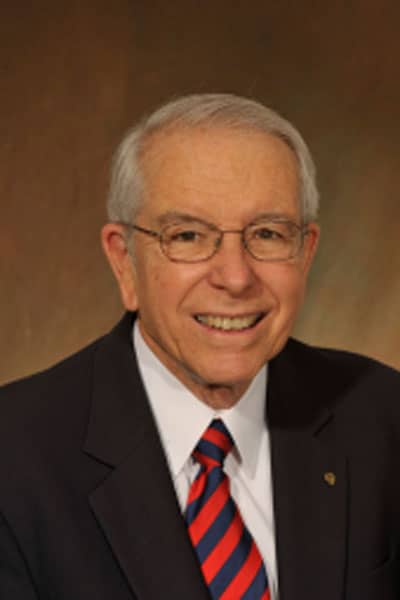
John Prados
Professor Emeritus, Chemical Engineering, the University of Tennessee
Education
- BS 1951 Chemical Engineering, the University of Tennessee, Knoxville
- MS 1954 Chemical Engineering, the University of Tennessee, Knoxville
- PhD 1957 Chemical Engineering, the University of Tennessee, Knoxville
John Prados was named the 2010 Nathan W. Dougherty award recipient by the UT Knoxville Tickle College of Engineering at the college’s Faculty and Staff Awards Dinner on April 22, 2010.
During his distinguished career at UT, which spans more than five decades, Prados served the University of Tennessee as professor and head in the Department of Chemical Engineering, as Associate Dean of Engineering, Dean of Admissions and Records, Acting Chancellor of both the Knoxville and Martin campuses and Acting Director of Energy Conversion Programs at the UT Space Institute. He also was named Vice President for Academic Affairs and Research of the statewide University of Tennessee system and served in that role from 1973 through 1988. In 1997, he received the coveted Macebearer Award, UT’s highest faculty honor.
Noted for his intellectual vigor and national leadership in engineering education, his professional influence has been felt far beyond the state of Tennessee. Prados is a Fellow of AIChE, ABET, and ASEE and is a registered professional engineer (retired) in Tennessee. He received ABET’s highest recognition for services to engineering education, the L.E. Grinter Distinguished Service Award, in 1993. He also received the James T. Rogers Award of the Commission on Colleges in 2004, Southern Association of Colleges and Schools, for outstanding leadership in regional accreditation; and the Lifetime Achievement Award in Chemical Engineering Pedagogy from the ASEE Chemical Engineering Division in 2007. He served at the National Science Foundation (NSF) from 1994–1997 as Senior Education Associate in the Engineering Directorate. Prados has also been a consultant to industry, government, and more than 30 universities and state education agencies in the United States and abroad.
In 2009, Prados received the Benjamin Garver Lamme Award from ASEE. Established in 1928, the honor recognizes excellence in teaching, contributions to research and technical literature and achievements that advance the profession of engineering college administration.
Prados was recognized for 50 years of combined service to the University of Tennessee, ASEE, ABET, NSF, and to the nation and the world for his leadership in engineering education reform and innovation.
2000-2009
Howard E. Chambers (2009)

Howard E. Chambers
Consultant, BCA Program Management, Boeing
Education
- BS 1964, Mechanical Engineering, the University of Tennessee, Knoxville
During the Vietnam conflict, Howard Chambers served in the U.S. Air Force as an Aircraft Maintenance Officer. After leaving the Air Force, he joined Rockwell International where he served in senior management positions in Test, Logistics, Business Development, and Program Management. Chambers also served as vice president and program manager for the B-1B Program. He maintained this position after Boeing acquired Rockwell’s Aerospace and Defense business sectors in 1996.
Chambers later served as vice president and general manager of the Airlift and Tanker Programs and vice president and general manager of the C-17 Globemaster III Transport Program. As vice president of Program Management and Independent Review for Boeing’s Integrated Defense Systems, he was responsible for development and deployment of program management best practices, providing training and development for program managers, and performing independent assessments of critical IDS programs.
Chambers has also served as vice president and general manager of Space and Intelligence Systems for Boeing’s Integrated Defense Systems, where he was responsible for the programs and assets of the company’s intelligence and space products—including satellite programs, proprietary programs, and Spectrolab, a wholly owned subsidiary that is a world leader in solar cell manufacturing and technology. He has also served as chairman of Boeing Satellite Systems International, Inc., Boeing Satellite Systems, Inc., and Spectrolab, Inc.
Chambers has received the Silver Knight of Management, Executive of the Year, and the Gold Knight of Management Awards from the National Management Association. He is an Associate Fellow of the American Institute of Aeronautics and Astronautics and received the 2002 Amelia Earhart Award for mentoring. Additionally, he received the President’s Distinguished Service Award from the California State University Long Beach Alumni Association in 2004 and the Crystal Arts and Humanitarian Award given by the International City Theater of Long Beach in 2005. Chambers managed the 787 Dreamliner Project for Boeing, which received the 2011 Robert J. Collier Trophy that recognized it for the greatest achievement in aeronautics or astronautics in America based on performance, efficiency, and safety.
Chambers is a member of the Society of Logistics Engineers and the Air Force Association. He also serves on the advisory boards for the College of Business’ National Defense Business Institute and the Tickle College of Engineering at the University of Tennessee, Knoxville, in addition to the College of Science’s Board of Visitors at the University of California at Los Angeles.
Nancy C. Cole (2007)

Nancy C. Cole
President, NCC Engineering
Education
- BS 1963, Metallurgical Engineering, the University of Tennessee, Knoxville
- MS 1988, Metallurgical Engineering, the University of Tennessee, Knoxville
Nancy Cole was the first female to graduate from UT with a degree in metallurgical engineering, the first female to graduate from the co-op program, and the first female to receive the Nathan W. Dougherty Award. Cole has spent more than a decade in research and development and another 17 years in fabrication, non-destructive evaluation, and repair. She began her career as a researcher in the corrosion of materials at Oak Ridge National Laboratory (ORNL) and later joined the Welding and Brazing Lab at ORNL.
Cole then worked for ABB Combustion Engineering (CE) in Chattanooga for 17 years where she worked on the development of welding electrodes, submerged arc fluxes, and flux cored wire to build and repair components for the power industry. While with CE, she also worked in marketing for the metallurgical laboratory and was promoted to contract manager. Upon the sale of CE, Cole returned to ORNL as the Fossil Energy Materials Program Manager before retiring and forming her own company, NCC Engineering.
In 2008, Cole was elected national vice president of the American Welding Society (AWS), and in 2013 she will become the President of AWS, the second woman to hold this position. She serves as chair of the National Science Foundation grant awarded to AWS and college and industry participants to develop model curricula for welding technicians in community colleges and technology institutes. She served as the Chair of the National Visiting Committee of Weld-Ed, and her term has since ended. She has participated in accreditation audits of Welding Engineering, Metallurgical Engineering, and Materials Science programs of several universities.
Cole is an AWS Fellow, internationally known for her pioneering work on corrosion resistance of brazed joints. She has published over 35 papers on brazing and corrosion of brazed joints, welding metallurgy of stainless steels, and refractory metals. She has received the UT Outstanding Alumna Award, was named Outstanding Tennessee Woman by the UT Panhellenic Council, and received the Chattanooga Jaycees Young Woman Award. Additionally, she and her husband established the Nancy and Leon Cole Outstanding Teacher Award, which UT has annually awarded for over 20 years.
Cole is a registered Professional Engineer in Tennessee and serves as a member of the Tickle College of Engineering’s Board of Advisors at the University of Tennessee, Knoxville. Her previous affiliations include serving on the Welding Research Council’s Research Committee as a member of the AWS Board of Directors, the National Research Council’s Materials Advisory Group for Marine Board, and the National Materials Advisory Board’s Advanced Joining Committee.
Michael Crabtree (2006)
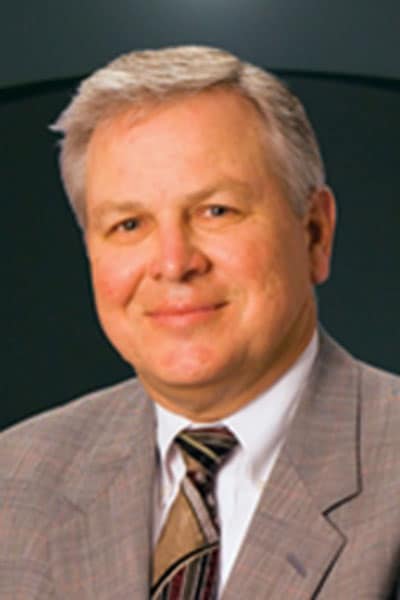
Michael Crabtree
Chief Manager, Crabtree Ventures, LLC
Education
- BS 1973, Electrical Engineering, The University of Tennessee, Knoxville
- MS 1975, Electrical Engineering, The University of Tennessee, Knoxville
- Executive MBA 1987, The University of Tennessee, Knoxville
Michael Crabtree began his career as an engineer at NASA’s Kennedy Space Center via the co-op program. He was a member of the Apollo 12, 13, 14, 15, and 17 launch teams and assisted with the design, testing, and operation of a closed circuit television system. From 1973 to 1975, he worked at plant computerization projects at DuPont’s Cape Fear Textile Fibers Plant and Polymer Intermediates Department as a programmer. In 1976, after completing his graduate thesis on an EG&G ORTEC Life Science Division product, Crabtree was hired as a development engineer by EG&G ORTEC. Most of his activities included developing the first commercial Positron Emission Tomography (PET) scanner distributor, the ECAT® Scanner. Between 1976 and 1983, he held positions as development engineer, senior development engineer, ECAT Project Engineer, ECAT Marketing Manager, and ECAT Program Manager.
In 1983, he co-founded CTI, Inc., and purchased the market leading ECAT® Scanner product line from EG&G ORTEC. In 2002, CTI Molecular Imaging, Inc., became a public company (NASDAQ: CTIM) and was purchased by Siemens three years later. Crabtree served CTI as vice president of Marketing and Sales, Systems Engineering, and New Business Development. Beginning in 1994, Crabtree served as CEO, COO, and chairman of United States Internet, Inc. In 1999, after a merger and public offering, he served as director and COO of OneMain.com (NASDAQ: ONEM) before it was purchased by EarthLink in 2000. Between 2000 and 2008, he served as Chairman and CEO of IdleAire Technologies.
IdleAire received the 2004 EPA Clean Air Excellence Awards in California and Texas and the 2002 R&D 100 Award for most significant R&D invention. Crabtree’s honors include the 1998 EXCEL Top 50 Fastest Growing Company Award while with U.S. Internet and the 1987 Coopers & Lybrand Entrepreneurial Company of the Year while with CTI. Crabtree serves on the Engineering Campaign Executive Committee at the University of Tennessee, Knoxville.
Mark Dean (2005)
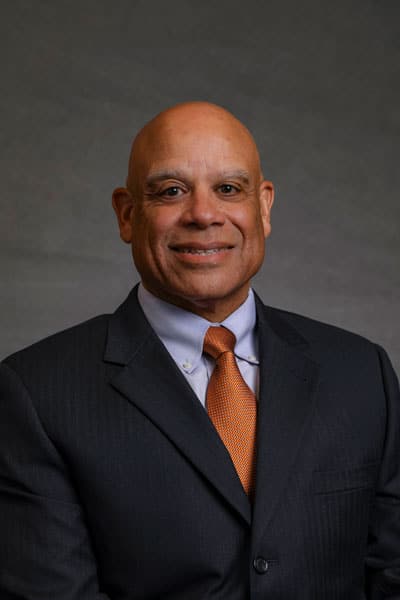
Mark Dean
Professor Emeritus, Electrical Engineering and Computer Science, the University of Tennessee
Education
- BS 1979, Electrical Engineering, the University of Tennessee, Knoxville
- MS 1982, Electrical Engineering, Florida Atlantic University
- PhD 1992, Electrical Engineering, Stanford University
While an undergraduate, Dean worked at ALCOA as a co-op student in the Minority Engineering Scholarship Program. After graduating in 1979, Dean began working as a chief engineer at IBM. As a result of his work, Dean holds three of the original nine patents on the standard IBM personal desktop computer that served as a basis for all personal computers. Additionally, Dean was the chief engineer for the development of numerous other subsystems in the original IBM PC.
In 1997, Dean was named director of the Austin Research Laboratory and director of Advanced Technology Development for the IBM Enterprise Server Group. In this capacity, Dean managed the team that developed the world’s first 1GHz CMOS microprocessor, leading to the processor in the Sony Playstation 3. In 2000, Dean became vice president for Systems Research at IBM’s Watson Research Center. Advancements developed by his research team included petaflop supercomputer systems structures (BlueGene), digital visualization, design automation tools, and memory compression.
In 2003, Dean became vice president in IBM’s Storage Technology Group and vice president for Hardware and Systems Architecture in IBM’s Systems and Technology Group. In 2004, he was appointed vice president of the IBM Almaden Research Center and senior location executive for Silicon Valley. An IBM Fellow, he retired from the company as Vice President of Technical Strategy & Worldwide Operations. In 2013, Dean returned to UT as the John Fisher Distinguished Professor in the Min H. Kao Department of Electrical Engineering and Computer Science. While at UT, he served as the college’s interim dean from August 2018 until July 2019. He has since retired and now serves in an emeritus professor role.
In 2000, U.S. News and World Report named Dean as one of the “Innovators of the 21st Century.” His invention of the Industry Standard Architecture, which permits add-on devices such as keyboards, disk drives, and printers to a motherboard, earned him election to the National Inventors Hall of Fame in 1997. Dean was only the third African-American to receive this honor. He is an IEEE Fellow, a NSBE Distinguished Engineer, and was named the CCG Black Engineer of the Year in 1997 and 2000, respectively. He also received the U.S. Department of Commerce’s Ronald H. Brown American Innovators Award and the National Institute of Science Outstanding Scientist Award. For attaining extraordinary distinction and success in his field, Mark Dean was awarded the 2012 University of Tennessee Distinguished Alumna/Alumnus Award.
Dean, who has 40 patents or patents pending, is a member of the American Academy of Arts and Sciences and the National Academy of Engineering.
Raja J. Jubran (2004)
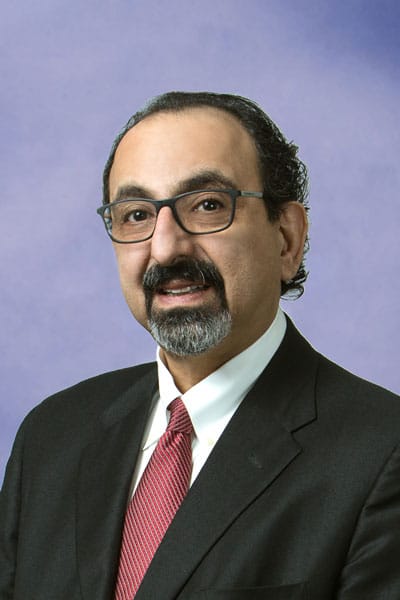
Raja J. Jubran
Education
- BS 1981, Civil Engineering, The University of Tennessee, Knoxville
In 1985, Raja Jubran founded Denark Construction Inc., a general contracting and engineering company based in Knoxville. As CEO of Denark, he has managed teams constructing public facilities, high-tech industrial plants, convention centers, medical offices, warehouse and distribution centers, shopping centers, multi-family projects, and other commercial projects. Jubran is also a community leader with many associations.
He serves on the Clayton Bancorp Board of Directors and the Clayton Bank & Trust Board of Directors, serving as Chairman of the Board Loan Committee and as a member of its Executive and Trust Committees.
Jubran also serves as a board member for Innovation Valley Inc., the Knoxville Public Safety Foundation, and Leadership Knoxville. He is a member of The Ramallah Club of Knoxville and an associate member of Nucleus Knoxville. Additionally, he is a member of the Leadership Knoxville Class of 1997.
Jubran previously served as Chairman for the Leadership Knoxville Board, the Knoxville Area Chamber Partnership, Knoxville’s Community Development Corporation, and the Investors Council of the Jobs Now! Campaign for Economic Development. He has served as Board President of the Knoxville Opera Company and as a Board Member for the YMCA of Greater Knoxville, the Knox Area Rescue Ministries, the Boys & Girls Clubs of Knoxville, Historic Tennessee Theatre Foundation, Maryville College National Advisory Council, the United Way of Greater Knoxville, the BB&T Regional Advisory Board, the Knoxville Museum of Art, and the Baptist Health System Foundation. Additionally, he served on the Tickle College of Engineering’s Board of Advisors at The University of Tennessee, Knoxville.
Jubran was selected as a 1984 Outstanding Young Man of America. In 2000, he served as a Presidential Elector for the State of Tennessee. Two years later, he received the National Conference for Community and Justice’s Brotherhood/Sisterhood Award. Also in 2002, Jubran was named a UT Department of Civil and Environmental Engineering Outstanding Alumnus. In 2005, he was named a Business Hall of Fame Laureate by Junior Achievement of East Tennessee.
Everett E. Bloom (2003)

Everett E. Bloom
Director, Metals and Ceramics Division, Oak Ridge National Laboratory (retired)
Education
- BS 1963, Metallurgical Engineering, South Dakota School of Mines and Technology
- MS 1965, Metallurgical Engineering, the University of Tennessee, Knoxville
- PhD 1970, Metallurgical Engineering, the University of Tennessee, Knoxville
Bloom worked two summers in a research and problem solving group at the St. Joe Lead smelter in Herculaneum, Missouri as an undergraduate and worked at Oak Ridge National Laboratory (ORNL) for a summer before beginning graduate school at the University of Tennessee, Knoxville, with a research fellowship.
Upon completion of his master’s degree, he joined the Metals and Ceramics division at ORNL. During his career he authored or co-authored papers introducing corrective research regarding the mechanical properties of metals and alloys; the effects of irradiation on the physical and mechanical properties of metals, alloys and ceramics; and the development of structural alloys for service in fission and fusion reactors and other challenging environments. Bloom is known worldwide for solving problems related to materials and design, construction, and maintenance of nuclear systems.
During his career, Bloom held multiple positions at ORNL’s Metals and Ceramics Division. He served as manager of the Fusion Materials Program, section manager of the Materials Science Section, and as group leader of the Radiation Effects and Microstructural Analysis Group. Bloom also served as the director of the Metals and Ceramics Division at ORNL from 1999 to 2006 prior to being named the associate director of the Center for Materials Processing at the University of Tennessee, Knoxville.
Bloom is an Elected Fellow in both the American Society for Metals and the American Nuclear Society. Bloom has been honored by the South Dakota School of Mines and Technology as a Distinguished Alumnus and is member of the Theta Tau Professional Engineering Fraternity Hall of Fame. Bloom also serves on the Board of Directors for RESPEC in Rapid City, South Dakota.
Jerry E. Stoneking (2002)
Stoneking began his engineering career by receiving his BS degree from the Georgia Institute of Technology in 1965, and MS and PhD degrees from he University of Illinois, in 1969, all in Theoretical and Applied Mechanics. Following faculty appointments at the University of Illinois, Clarkson University and the University of South Carolina, he joined the University of Tennessee Department of Engineering Science and Mechanics in 1975. While a professor, he was awarded the College’s Outstanding Research Award in 1978 and 1980, and was named IBM Professor in 1981, a chair he held until his administrative appointment. He was appointed head of the Department of Engineering Science and Mechanics Department in 1984. In 1993, Stoneking was named Dean of Engineering.
He was a registered professional engineer and an active participant in the American Society of Mechanical Engineers, the American Society of Civil Engineers, and the American Society for Engineering Education and the National Society of Professional Engineers, where he served as vice-president. He was also a member of the National Transportation Research Center, the Oak Ridge Center for Manufacturing Technology, Pacific Northwest National Laboratory, the Knoxville Area Chamber Partnership, the Tennessee Center for Research and Development and the Tau Beta Pi Editorial Board. Stoneking was nationally recognized for his research accomplishments in computational mechanics, particularly activities related to ultra-high precision machining technology.
Stoneking was a visionary leader with the courage to change the prevailing culture to help the college reach its full potential. He interacted on a national level with other leaders in engineering education and with many corporate leaders in developing partnerships for the University and for the placement of its graduates. He was very concerned about the individual welfare and professional progress of his students. His involvement with students and student organizations was one of dedication and loyalty.
During his tenure as dean, Stoneking was the architect and driving force behind the Engage Freshman Engineering Fundamentals Program. It has won national renown, including recognition by the National Science Foundation, as one of the best and most innovative engineering education programs in the nation. At the college’s annual Engineering Honors Banquet in April 2002, the Engage program was officially renamed in Stoneking’s honor, reflecting the passionate commitment and advocacy he contributed that has made the Engage program such a success. He also led a move to increase the professionalism of the students, and his work in this area resulted in an increase in their exam scores to 16% above the national average.
Stoneking died unexpectedly in November 2001.
William T. Snyder (2001)

William T. Snyder
Chancellor Emeritus, the University of Tennessee, Knoxville
Education
- BS 1954, Mechanical Engineering, the University of Tennessee, Knoxville
- MS 1956, Mechanical Engineering, Northwestern University
- PhD 1958 Mechanical Engineering, Northwestern University
In 1958, Snyder began his academic career as a professor at North Carolina State University and continued teaching at the State University of New York at Stony Brook from 1961 to 1964. In 1964, Snyder was one of the first faculty members to start the UT Space Institute in Tullahoma, where he taught aerospace engineering for six years. In 1970, Snyder returned to the Knoxville campus as professor and head of Engineering Science and Mechanics. In 1983, Snyder became dean of the Tickle College of Engineering where he established four Chairs of Excellence, including the Henry Goodrich Chair of Excellence in Civil Engineering; created two research centers; and conducted a successful capital campaign, surpassing its original goal of $12 million.
Snyder later served as acting vice chancellor for academic affairs and acting chancellor before being named UT-Knoxville’s fifth chancellor in 1992. As chancellor, he championed affirmative action, diversity, and new technologies. One of Snyder’s most significant accomplishments was his leadership of the 21st Century Campaign, which raised $422 million in gifts to UT. Upon stepping down in 1999, he began a special assignment for President J. Wade Gilley, developing strategies for implementing the president’s new Tennessee Plan for Academic Excellence. Snyder spent the last four years of his academic career in the classroom, serving as a professor of engineering until 2004.
Snyder has written over 50 publications with his research spanning the topics of lubrication, combustion, magneto hydrodynamics, and energy management. Snyder has been honored by Tau Beta Pi, Phi Kappa Phi, Pi Tau Sigma, Sigma Xi, and was a charter member of the Association of Energy Engineers. He also received the 1998 Tau Beta Pi Standard of Excellence Award and the 1989 University of Tennessee National Alumni Association Public Service Award.
Snyder is currently the director of Development and Community Relations for the Historic Tennessee Theatre Foundation in Knoxville and continues to delight audiences by playing the “Mighty Wurlitzer” organ. He also serves as the chair for Leadership Annual Giving on the Tickle College of Engineering’s Campaign Executive Committee at the University of Tennessee, Knoxville.
Charles O. Holliday, Jr. (2000)
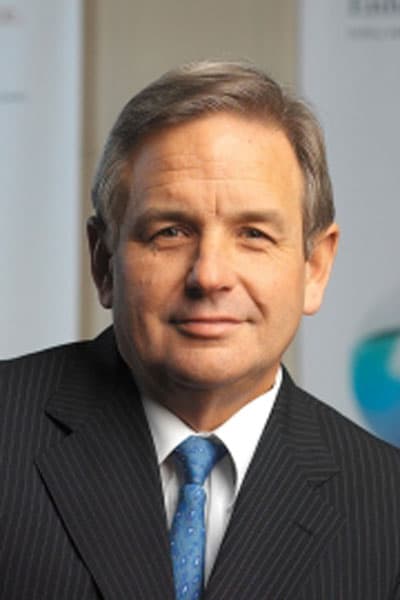
Charles O. Holliday, Jr.
Chairman, National Academy of Engineering
Education
- BS 1970 Industrial Engineering, the University of Tennessee, Knoxville
After graduation, Chad Holliday began working for DuPont in his hometown of Nashville. In 1974, he transferred to DuPont headquarters in Delaware as a business analyst in the Fibers Department. Throughout the mid- to late-1980s, he spent time as manager of Corporate Plans, global business director for Nomex and Kevlar, and became director of marketing for Chemicals and Pigments. He continued his assent within DuPont throughout the 1990s, serving as vice president, president, senior vice president, and eventually, chairman of DuPont Asia Pacific. In 1996, he was named one of “Tomorrow’s CEOs” by Fortune.
In 1998, he was appointed CEO of DuPont, the largest chemical company in the United States. He became the 18th executive of the over 200 year-old company and the youngest during the 20th century. A year later, he became chairman of the board. Through Holliday’s leadership, DuPont established a mission to achieve sustainable growth—increasing shareholder and societal value while decreasing the company’s environmental footprint. As a result, DuPont has moved from a chemical company to a science-based products and services company. In 2009, he retired from his role as CEO of DuPont.
He has received the U.S. Council for International Business’ International Leadership Award and the CH2M HILL’s Building a Better World Award. In 2002, he was appointed by President George W. Bush to serve on the National Infrastructure Advisory Council. In 2004, the ASM International Materials Information Society honored him for Advancement of Research. In 2007, he received the Captains of Industry Award from the Institute of Industrial Engineers. He has also received honorary doctorates from Washington College in Maryland and from the Polytechnic University in Brooklyn, New York.
Holliday served as co-chair on the UT Tickle College of Engineering’s Campaign Executive Committee and continues to play an active role at UT. In 2008, he was the first recipient of the UT Volunteer of the Year-Distinguished Alumnus Award. The award was established to honor alumni who have excelled at the national and international level, whose achievements have benefited their fellow citizens, and who have brought great credit to the University of Tennessee.
Holliday serves on the board of directors of Deere & Co., CH2MHILL, ClimateWorks Foundation, and is Chair Emeritus on Catalyst’s board of directors. He is a member of the Institute of Industrial Engineers and an elected member of the National Academy of Engineering. In addition, he is a founding member of the International Business Council.
1990-1999
Joseph C. Cook, Jr. (1999)

Joseph C. Cook, Jr.
Principal and Co-Founder, Mountain Group Capital, LLC and The Limestone Fund, LLC
Education
- BS 1965, Industrial Engineering, the University of Tennessee, Knoxville
Joe Cook graduated with High Honors and was named a Torchbearer, UT’s highest student honor given for academic achievement and commitment to others. Cook then began his engineering career at Eli Lilly & Company in Indianapolis, focusing on automated cancer screening research. During his 28+ years with Eli Lilly, he held numerous senior executive positions in manufacturing, engineering, finance, sales and marketing, and general management. In 1993, Cook retired as group vice president for Global Operations.
After retiring from Lilly, he began a new career in biotechnology. He was a founder and Chairman of Ironwood Pharmaceuticals, Inc. a biotech company that recently received FDA approval for a new medicine for people with serious gastro-intestinal disorders. In 1998, he was elected chairman and CEO of Amylin Pharmaceuticals, Inc. a publicly traded company in San Diego. He led Amylin through the development of two new drugs for people with diabetes, BYETTA and BYDUREON, both of which have now been approved by the FDA. Cook retired as CEO Amylin in 2003 but continued to serve as the company’s chairman until 2009.
Following retirement from the Amylin CEO role, Cook and partners formed Mountain Group Capital (“MGC”), a Nashville based investment firm dedicated to investing in and actively guiding transformational businesses in the Life Sciences and Technology sectors. In 2009, he and partners formed The Limestone Fund which was subsequently chosen by the State of Tennessee as one of the original six TNInvestco award winners. Through various funds, MGC principals have invested in more than 20 companies in their targeted sectors
Cook currently serves as a director of two publicly traded companies, Ironwood Pharmaceuticals, Inc. in Cambridge, MA and Corcept Therapeutics, Inc. in Palo Alto, CA. He also serves as chairman of Mercy Ministries International, a faith-based global ministry headquartered in Nashville and on the national board of the American Diabetes Association. Additionally, Cook has been a member of the Tickle College of Engineering’s Board of Advisors at the University of Tennessee, Knoxville for over 20 years, previously serving as chairman. In 1997, Cook and his wife established the Judith E. and Joseph C. Cook, Jr. Engineering Scholarship Endowment at UT to help deserving engineering students.
In 1999, Cook was awarded the Nathan W. Dougherty Award by the Tickle College of Engineering at the University of Tennessee. The Corporate Directors Forum named Cook its Director of the Year in 2003 and 2006, respectively. He also received the Pinnacle Award for Life Science Leadership from the Rady School of Management at the University of California, San Diego in 2009. For attaining extraordinary distinction and success in his field, Joseph Cook received the 2011 University of Tennessee Distinguished Alumna/Alumnus Award.
J. Don Brock (1998)
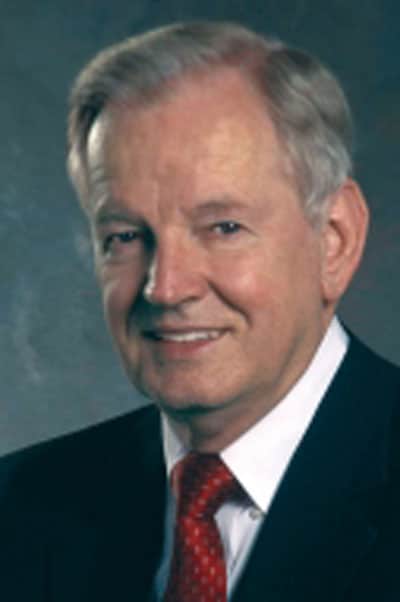
J. Don Brock
Chairman & CEO, Astec Industries Inc.
Education
- BS 1961, Mechanical Engineering, the University of Tennessee, Knoxville
- MS 1963, Mechanical Engineering, Georgia Institute of Technology
- PhD 1965, Mechanical Engineering, Georgia Institute of Technology
Brock spent four years as Vice President of Chattanooga Systems, Inc., prior to being named Vice President of CMI Systems in Chattanooga. Between 1970 and 1972, he served as President of CMI Systems, President of Textiles Systems, Inc. (a subsidiary of CMI Corporation), and Corporate Vice President of CMI Corporation in Oklahoma City, Oklahoma.
In 1972, upon its founding, he became Chairman of the Board and Chief Executive Officer of Astec Industries Inc. Astec is the leading manufacturer of equipment for asphalt road building, aggregate processing, pipeline and utility trenching, and wood processing in the United States. Brock holds approximately 100 U.S. and foreign patents on construction machinery and drying equipment.
In 1983, Brock was honored as the “Man of the Year” by the National Asphalt Pavement Association (NAPA). The Chattanooga Area Engineering Societies named Brock “Engineer of the Year” in 1984 and “Inventor of the Year” in 1988. In 1996, he was the first active industry member to be inducted into the NAPA Hot Mix Hall of Fame.
Additional industry honors include the 1996 Engineering Manager of the Year from the American Society of Engineering Management; the 1997 Private Partnership Award/Transportation Science & Ethics from the Alliance for Transportation Research Institute; the 1999 Captain C.D. Mitchell Award from the Chattanooga Manufacturers Association; the 1999 Hall of Fame Award from the Construction Equipment Industry; the 2001 Ronald D. Kenyon Research and Education Award from the NAPA Research and Education Foundation; and the 2003 Norman McLeod Award for Innovation from the Ontario Asphalt Pavement Association. In 2004, he was included in the American Road & Transportation Builders Association Top 100 Private Sector Transportation Construction Professionals of the 20th Century. In 2009, Brock received the Ernst & Young Entrepreneur of the Year award and in 2010 Brock received the Engineer of the Decade award during Chattanooga Engineers Week.
On September 11, 2012, ARTBA permanently honored Brock by renaming the yearly Transovation Award which is awarded to foster innovative thinking within the transportation industry to publicly recognize proven innovators. The award is now known as the J. Don Brock Transovation Award in his honor.
Brock serves as Chairman of the Steering Committee for the National Center for Asphalt Technology at Auburn University and as a Board Member of The Dixie Group. Additionally, Brock served on the Tickle College of Engineering’s Board of Advisors at the University of Tennessee, Knoxville in 2002 and 2003.
Ronald Nutt (1997)
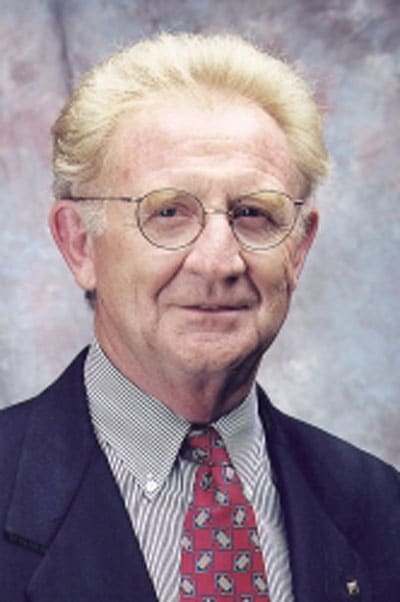
Ronald Nutt
CEO, Advanced Biomarker Technologies
Education
- BS 1961, Electrical Engineering, the University of Tennessee, Knoxville
- MS 1962, Electrical Engineering, the University of Tennessee, Knoxville
- PhD 1969, Electrical Engineering, the University of Tennessee, Knoxville
Nutt is CEO of Advanced Biomarker Technologies, a company dedicated to developing molecular imaging biomarkers. In 1983, he co-founded and was a member of the Board of Directors of CTI Molecular Imaging. He was vice president of Research and Development from 1983 through 1998 when he became president of CTI PET Systems, a joint venture between Siemens and CTI. In 2002, he became president and CEO of CTI Molecular Imaging, Inc., a NASDAQ public company. Nutt led negotiations with Siemens during the sale of the company in 2005 and assisted in the integration of CTI into Siemens through May of 2006. Nutt has more than 30 patents in the field of molecular imaging, authored and co-authored a large number of technical publications, and has presented at many conferences. Prior to founding CTI Molecular Imaging, Nutt was co-founder of other companies including Technology for Energy Corporation, Radio Systems Corporation, and Delta M Corporation. As vice president of EG&G ORTEC between 1969 and 1979 he was responsible for developing many innovations in the field of nuclear physics instrumentation. Prior to ORTEC, he was a researcher at ORNL and taught electrical engineering at the University of Tennessee.
Nutt is an IEEE Fellow. In 1999, IEEE named him Outstanding Engineer for the Eastern U.S. for his contributions to molecular imaging and the Academy of Molecular Imaging named him Scientist of the Year. In 2000, the PET/CT invention, which Nutt co-created, was named Medical Invention of the Year by Time. Additionally, he was awarded an honorary MD by the University of Essen in Germany in 2008.
Nutt served as a UT Chancellor’s Associate and is a member of the Tickle College of Engineering’s Campaign Executive Committee. The Nutt family established three major endowments at UT. In 1998, the Randall Keith Nutt Engineering Scholarship Endowment was established in honor of Nutt’s son who passed away after completing his freshman year in electrical engineering. The Nutt family also established the Ronald Nutt Fellowship in Image Formation and Processing and the Ronald Nutt Family Engineering Scholarship. Nutt, in conjunction with fellow alumni and former CTI Inc. founding partners Michael Crabtree, Terry Douglass, and Kelly Milam, established the CTI Chair in the Department of Electrical Engineering & Computer Science.
Ron F. Green (1996)

Ron F. Green
Chairman, Advatech, LLC
Education
- BS 1970, Engineering Physics, The University of Tennessee, Knoxville
- MS 1978, Engineering Administration, The University of Tennessee, Knoxville
While an undergraduate, Green played varsity baseball and participated in student government, serving as a student senator from the Tickle College of Engineering. In 1970, after working his way through school as a co-op student at Union Carbide, he accepted a job as a test engineer with Union Carbide in Oak Ridge.
Later, while working with U.S. Nuclear, Inc., he became the youngest plant manager in the country at age 26. Green later served as manager of quality assurance and interface control for the U.S. Department of Energy. After three years with the Department of Energy, he joined the System Development Corporation as southeast regional manager.
In 1982, Daniel International, a subsidiary of Fluor Corporation, offered him a job as a division vice president. Green worked for Daniel International for 16 years supervising the construction of power plants in China, Saudi Arabia, South America, Jordan, Thailand, and others countries. In 1989, Fluor launched a new company with Duke Power called Duke/Fluor Daniel. Green served as its founding president and served as president of the Power Generation Operating Company for Duke/Fluor Daniel. Under Green’s leadership, Duke/Fluor Daniel saw revenues rise to $4 billion a year. Green departed Duke/Fluor Daniel to become president of Shell Oil’s Power Division; however, he returned in 1999 as president and CEO of Duke Engineering and Services, Inc. Before his passing in 2011, Green was the chairman of Advatech, LLC, a provider of technology to reduce sulfur dioxide emissions as well as engineering, design, and construction services for the power market.
As an original member of the Tickle College of Engineering’s Board of Advisors at the University of Tennessee, Knoxville, he recognized the need to update the engineering curriculum and improve the communications skills of engineering students. Green helped to develop the Jerry E. Stoneking Engage Engineering Fundamentals Program where freshman students develop communication skills and hands-on engineering skills. He served on the Board of Directors for both Astec Industries and Eagle Energy, Inc. and was also a member of Tau Beta Pi and the American Nuclear Society.
J. Milton Bailey (1995)

J. Milton Bailey
Education
- BS 1949, Physics, Davidson College
- MS 1952, Electrical Engineering, The University of Tennessee, Knoxville
- PhD 1960, Electrical Engineering, Georgia Institute of Technology
Bailey spent three years as an instrument engineer with E.I. DuPont before earning his doctorate from Georgia Tech in 1960. While at Georgia Tech, he received the M.A. Ferst Sigma Xi Award for his dissertation. After receiving his doctorate, Bailey was instrumental in the development of the system engineering approach to missile designs for Martin Marietta.
As manager of Systems Engineering for Martin Marietta, Bailey’s research activities at the Army Missile Command Redstone Arsenal and the Advanced Ballistic Missile Defense Agency focused on guidance and control for the Pershing missile and an anti-ballistic missile. Bailey later supervised the SPRINT Missile System project as manager of the System Analysis Department. He also served as technical director of Martin Marietta’s portion of the SAM-D Missile System, which evolved into the Patriot System.
In 1968, he accepted the ALCOA Chair of Industrial Engineering at the University of Tennessee, Knoxville. Upon beginning a consulting agreement with Union Carbide in 1970, later known as Martin Marietta Energy Systems, Bailey applied his skills to the Gaseous Diffusion Plant where he helped develop the center centrifuge drive system. In 1991, Bailey received a patent on this Axial Gap Permanent Magnet Brushless D.C. Motor. Four years later, this motor was exhibited on the White House lawn at a celebration of the “Partnership for a New Generation Vehicle.”
Bailey was the author or co-author of over 50 technical publications, establishing himself as a recognized leader in the electrical engineering fields of controls and motor design. He was a senior member of the Institute of Electrical and Electronics Engineers and a Professor Emeritus in electrical engineering at the University of Tennessee, Knoxville.
James O. Stiegler (1994)
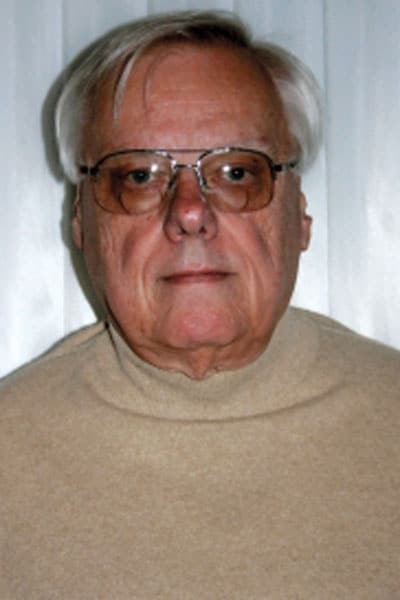
James O. Stiegler
Associate Director, Energy and Engineering Sciences, Oak Ridge National Laboratory (retired)
Education
- BS 1956, Metallurgical Engineering, Purdue University
- PhD 1971, Metallurgical Engineering, The University of Tennessee, Knoxville
During his career, Stiegler held various positions with the U.S. Department of Energy at Oak Ridge National Laboratory (ORNL). He started as a research assistant in the Solid State Physics Division and later became director of the Metals and Ceramics Division. In 1991, the U.S. Department of Energy recognized Stiegler for his efforts in transferring technologies from the Metals and Ceramics Division of Oak Ridge National Laboratory to the private sector. He served as group leader in electron microscopy prior to retiring as ORNL’s associate director for Energy and Engineering Sciences.
Stiegler has received multiple honors for his work at Oak Ridge National Laboratory. In 1966, he was named one of Tennessee’s three Outstanding Young Men by the Tennessee Jaycees. He received the American Welding Society’s 1975 William Sparagan Award and the 1979 McKay-Helm Award. He is also an ASM International Fellow. In 1988, the University of Tennessee honored Stiegler with the Engineering Alumni Award. Additionally, in 2007, he received the Happy Booker Award from the Knoxville Opera Guild.
His previous memberships include the American Ceramic Society, the ASM International American Welding Society, and the Metals Research Society. Stiegler has served as a board member for the American Welding Institute and served on the advisory boards for North Carolina A&T, North Carolina State University, Tennessee Tech, and the Australian Nuclear Science and Technology Organization. In 1996 and 1997, Stiegler participated as a member of the Tickle College of Engineering’s Board of Advisors at the University of Tennessee, Knoxville.
Pietro F. Pasqua (1993)
Pietro “Pete” F. Pasqua (1922–1992), was the first head of the first department of nuclear engineering in the nation, established in 1957 here at UT. Among his many outstanding contributions to education, Pasqua played a role in founding the Nuclear Division of the American Society of Engineering Education, and for many years he served on the Oak Ridge Associated Universities Council and the Alcoa Board of Education.
In 1988, UT dedicated a building in honor of Pasqua—a facility originally constructed in 1925 as the university’s power plant and renovated in 1973 to house the Department of Nuclear Engineering. In July 2018, Pasqua Hall was demolished to make way for the Zeanah Engineering Complex, the new home of the Department of Nuclear Engineering, where the Pietro F. Pasqua Classroom is named in his honor.
Rafael C. Gonzalez (1992)
Rafael C. Gonzalez
Professor Emeritus, Electrical Engineering & Computer Science, The University of Tennessee, Knoxville
Education
- BS 1965, Electrical Engineering, University of Miami
- ME 1967, Electrical Engineering, University of Florida, Gainesville
- PhD 1970, Electrical Engineering, University of Florida, Gainesville
In 1970, Gonzalez joined the electrical and computer engineering department at the University of Tennessee, Knoxville. In 1984, he was named a Distinguished Service Professor. He also served as head of the electrical and computer engineering department from 1994 to 1997.
In 1982, Gonzalez founded Perceptics Corporation, which became highly successful in image processing, computer vision, and laser disk storage technologies. Perceptics introduced the world’s first commercially available computer vision system for automatically reading the license plate on moving vehicles; a series of large-scale image processing and archiving systems used by the U.S. Navy to inspect the rocket motors of missiles in the Trident II Submarine program; the market leading family of imaging boards for advanced Macintosh computers; and a line of trillion-byte laser disk products. In 1992, Westinghouse acquired Perceptics.
Gonzalez is frequently sought to consult both industry and government in the areas of pattern recognition, image processing, and machine learning. Gonzalez is co-holder of two U.S. patents and has been an associate editor of the IEEE Transactions on Systems, Man and Cybernetics, and the International Journal of Computer and Information Sciences. He is the author or co-author of over 100 technical articles, two edited books, and four textbooks. His books are used in over 1,000 universities and research institutions throughout the world. His academic awards include the 1977 Tickle College of Engineering Faculty Achievement Award, the 1978 Chancellor’s Research Scholar Award, the 1980 Magnavox Engineering Professor Award, and the 1980 M.E. Brooks Distinguished Professor Award. In 1981, he was named an IBM Professor. He was named an IEEE Fellow in 1984, received the 1987 IEEE Outstanding Engineer Award for Commercial Development in Tennessee, and received the 1992 IEEE Region 3 Outstanding Engineer Award. In 1988, he received the Albert Rose National Award for Excellence in Commercial Image Processing. A year later, he received the B. Otto Wheeley Award for Excellence in Technology Transfer and the Coopers & Lybrand Entrepreneur of the Year Award. Gonzalez also received the 1993 Automated Imaging Association National Award for Technology Development.
James L. Howard (1991)
Robert C. Hart (1990)

Robert C. Hart
President, Tennessee Eastman Company (retired)
Education
- BS 1947, Mechanical Engineering, University of Louisville
After graduating from the University of Louisville, Hart was employed by the Kentucky Inspection Bureau and later by North American Rayon Corporation in Elizabethton, Tennessee. In 1949, he enrolled in graduate school at the University of Tennessee, Knoxville, to study mechanical engineering. Hart left UT, however, in August of 1950 to accept a position with Tennessee Eastman Company.
Hart joined Tennessee Eastman as an assistant mechanical engineer and gained experience in equipment design, facilities design and operation, manufacturing, and administration management. In 1979, he became the sixth president of the Tennessee Eastman Company. Five years later, he was given additional responsibilities as president of Holston Defense Corporation. In 1990, Hart was named vice president of administration for Eastman Chemical Company, Eastman Kodak Company.
In 1983, Hart and Tennessee Eastman were able to design, build, and operate a “Chemicals from Coal” facility. That year, he received the Innovation in Coal Conversion Award from the chemical engineering department at the University of Pittsburgh and was recognized as a University of Louisville Distinguished Alumnus. The American Chemical Society has since designated that facility as a National Historic Chemical Landmark.
Hart was a Fellow of the American Society of Mechanical Engineers and a senior member of the American Institute of Chemical Engineers. He was a member of the National Society of Professional Engineers and Tau Beta Pi. In 1993, he received an honorary doctorate in Engineering Science from Milligan College.
He served on the board for King College in Bristol, the Northeast State Community College Foundation, the East Tennessee State Foundation, and the Sequoyah Council for the Boy Scouts of America Executive Board. For his service, Hart received the Silver Antelope from the Boy Scouts of America.
Hart had also been a board member for First Tennessee Bank of Kingsport/ Bristol, Tennessee, the Holston Valley Health Care Foundation, and the Greater Kingsport Chamber of Commerce. He served as section president of both the American Society of Mechanical Engineers and the Instrument Society of America.
1980-1989
Richard E. Ray (1989)

Richard E. Ray
Education
- BS 1953, Metallurgical Engineering, University of Alabama
Following his graduation, Richard Ray joined the U.S. Army and served as a 1st Lieutenant in Korea. In 1953, he began working for the Aluminum Company of America’s (ALCOA) Tennessee Operation. He later held metallurgical and management positions in Davenport, Iowa; Pittsburgh, Pennsylvania; and Point Henry, Australia. In 1977, he began his tenure as operations manager of the ALCOA Tennessee Operation. During his 15-year tenure as manager of one of ALCOA’s largest and oldest plant locations, the company invested more than $400 million in modernizing the East Tennessee aluminum making and fabricating complex. Completed in mid-1990, the program resulted in the most modern aluminum rolling facility in the world.
Ray is currently a member and past chair of the Tennessee State Board of Education and serves on the College of Arts and Science’s Board of Associates at the University of Tennessee, Knoxville. He is also chair of the Great Smoky Mountain Institute at Tremont and a member-at-large of the Knoxville Symphony Board of Directors. In the past, he served as a board member of North American Royalty Co., First Tennessee Bank’s Knoxville Region, and First Tennessee National Corporation.
Over the years, Ray has been an active civic figure serving as vice chairman for economic development while on the Knoxville Chamber of Commerce and as former chairman of the finance committee for the board at Maryville College. He is a former board member for the Knoxville Museum of Art, the East Tennessee Foundation, Thompson Cancer Center, and Junior Achievement of Greater Knoxville. Ray also served as president of the Great Smoky Mountain Council and was involved in the Metropolitan Knoxville Airport Authority and Boy Scouts of America. In 2008, he received a Community Caring Award from the Patricia Neal Rehabilitation Center in Knoxville.
In 1990, Ray was named UT Volunteer of the Year. He served as an original advisory board member for the College of Arts and Sciences, participated on the UT Development Council, and is a past chairman of the Chancellor’s Associates at the University of Tennessee, Knoxville.
Donald V. Borst (1988)
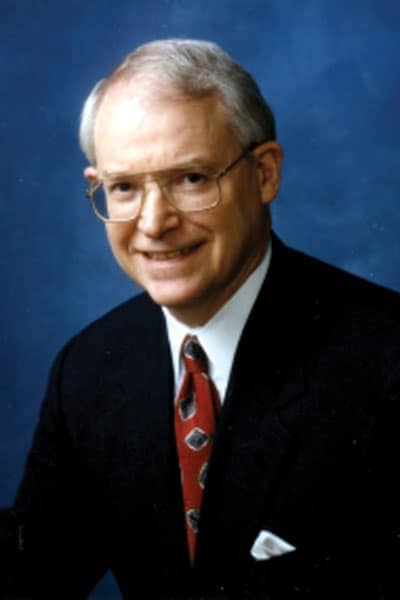
Donald V. Borst
President & CEO, Millennium Inorganic Chemicals (retired)
Education
- BS 1957, Chemical Engineering, The University of Tennessee, Knoxville
- 1974, Advanced Management Program, Harvard Business School
Donald Borst enrolled at the University of Tennessee, Knoxville, in the fall of 1953 to study chemistry. He operated the Rhenium Laboratory before transferring to chemical engineering. As a chemical engineering student, he worked at Oak Ridge National Laboratory and Rohm & Hass.
During his career, Borst was senior vice president of CF Industries, Inc., one of the largest manufacturers and distributors of nitrogen, phosphate, and potash fertilizers in North America. He also served as president and CEO of Agritrans Corporation. In 1984, he joined SCM Chemicals as vice president, and two years later, he was appointed president and CEO of the company’s global business. In this capacity, he managed the second-largest producer of titanium dioxide in the United States and the third-largest in the world with some of the most modern and productive titanium dioxide facilities. Before his retirement in 1997, SCM Chemicals became Millennium Inorganic Chemicals. Upon retirement, Borst received the 1997 Industry Statesman Award from the National Paint and Coatings Association.
In 1987, Borst took part in the Chemical Engineering Department’s Distinguished Alumni Seminar Series at the University of Tennessee, Knoxville. He also served the university as chair of the Advisory Council for Enhancement under chancellor William T. Snyder, the 2001 Nathan W. Dougherty Award recipient, and as a member of the Tickle College of Engineering’s Board of Advisors in 2002 and 2003.
Charles D. Scott (1987)

Charles D. Scott
Director, Bioprocessing Research & Development Center, Oak Ridge National Laboratory (retired)
Education
- BS 1951, Chemical Engineering, University of Missouri
- MS 1961, Chemical Engineering, the University of Tennessee, Knoxville
- PhD 1966, Chemical Engineering, the University of Tennessee, Knoxville
After two years as an artillery officer in the U.S. Army, Scott spent his entire 41-year engineering career at the U.S. Department of Energy facilities in Oak Ridge, Tennessee. Scott mainly worked at Oak Ridge National Laboratory, however, he also worked at the Y-12 nuclear weapons production site. His primary activities at Oak Ridge National Laboratory were in the areas of chemical and biochemical process development as related to energy. Scott retired from Oak Ridge National Laboratory as director of the Bioprocessing Research and Development Center. He also held positions as a part-time professor of engineering science and as an adjunct professor of chemical engineering at the University of Tennessee, Knoxville, teaching in both Perkins Hall and Dougherty Hall.
For his work at Oak Ridge National Laboratory, Scott received the U.S. Department of Energy’s E.O. Lawrence Memorial Award and the American Chemical Society’s Pearlman Award. He has also been elected to the National Academy of Engineering and is a member of the American Institute of Chemical Engineers, the American Chemical Society, and the honorary chemistry society Alpha Chi Sigma.
Additionally, Scott has held membership with the American Association for the Advancement of Science, the American Association for Clinical Chemistry, and the honor society of science and engineering, Sigma Xi.
Robert M. Condra (1986)
S. T. Harris (1985)
E. Eugene Stansbury (1984)
William D. Manley (1983)
Robert Hamilton Nagel (1982)
George Payne Palo (1981)
Fred Neal Peebles (1980)
1970-1979
Jesse Mack Turner (1979)
Floyd L. Culler, Jr. (1978)
William Albert Fortune (1977)
Charles Hadley Weaver (1976)
Edward Monteith Dougherty (1975)
Rinehart S. Bright (1974)
Rinehart S. Bright
Vice President, Chrysler Corporation (retired)
Education:
- BS 1936, Mechanical Engineering, The University of Tennessee, Knoxville
Rinehart Bright had a career that spanned 25-plus years at Chrysler Corporation. His profession had him designing and manufacturing automobiles in New Orleans, Indiana, and Detroit. Bright retired as vice president of Crysler in 1977.
While attending the University of Tennessee, Bright participated in Tau Beta Pi, the National Engineering Honor Society and was a member of Sigma Alpha Epsilon. He worked shoveling coal into dormitory furnaces and other side jobs to pay for his education.
Henry C. Goodrich (1973)
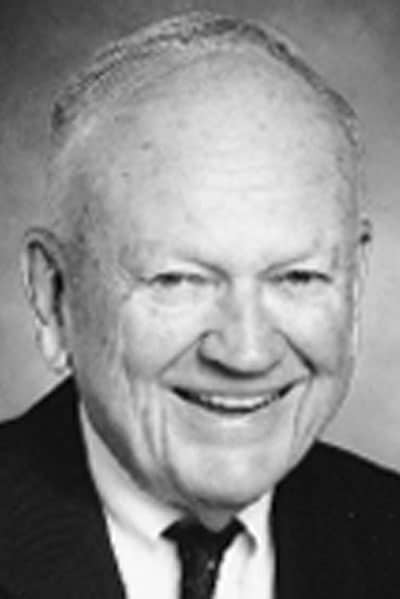
Henry C. Goodrich
Chairman, Richgood Corporation
Education
- BS 1942, Civil Engineering, The University of Tennessee, Knoxville
Henry Goodrich began his engineering career with Rust Engineering Company in Birmingham, Alabama, where his responsibilities included design, construction, and management. In 1967, Goodrich left Rust Engineering and became chairman and chief executive officer of Inland Container Corporation and chairman of Inland’s major mill operation, Georgia Kraft, in Rome, Georgia. During his tenure, Inland grew and spread to the West Coast and Puerto Rico and built the first modern recycling mills. In 1979, Goodrich initiated and completed a merger of Inland with Time, Inc. Following the merger, he returned to Birmingham to become chairman and CEO of Southern Natural Gas Company, the largest natural gas company in the South. He led a major transformation of the company under a new name, SONAT, Inc., before retiring in 1985.
After retiring from SONAT, Goodrich served as chairman of Richgood, a venture capital and investment company that he had incorporated in 1972. Richgood makes investments in biotechnology, health care, technology, and financial services, primarily in Alabama. Also in 1972, he and two partners put up the initial funding for BE&K, Inc., now one of the largest engineering and construction companies in the United States.
While with Inland in 1975, Goodrich was named Papermaker of the Year by Pulp and Paper magazine. In 1981, while with SONAT, he was named Best Chief Executive in the Gas Industry. In 1986, he was selected as one of 12 Outstanding Scientists and Engineers from the state of Tennessee and was placed in the Alabama Academy of Honor. Additionally, Goodrich was inducted into the Alabama Engineering Hall of Fame in 1991 and both the Alabama Business and Birmingham Business Halls of Fame in 2000. Goodrich also received honorary doctorates from Butler University, Marion College, Birmingham-Southern College, and the University of Alabama at Birmingham (UAB). For his civic involvement, Mr. Goodrich was awarded with the Silver Beaver Award by the Boy Scouts of America in 1987.
Goodrich was a Fellow of the American Society of Civil Engineers and a member of the Newcomen Society, the oldest society devoted to the study of the history of engineering and technology. Until his passing in 2011, he was an emeritus member of the University of Tennessee Development Council and a senior director of the UAB Research Foundation. He was a registered Professional Engineer in 12 states.
Milton Shaw (1972)
James Dorris Barbee (1970)
1960-1969
Aubrey J. Wagner (1969)
Alvin M. Weinberg (1968)
Lorin Blanchard Allen (1967)
Frank S. Riordan, Jr. (1966)
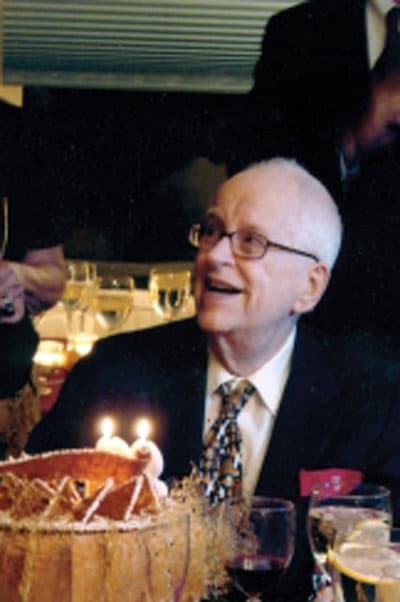
Frank S. Riordan, Jr.
Education
- BS 1940, Chemical Engineering, University of Cincinnati
- MS 1947, Chemical Engineering, The University of Tennessee, Knoxville
- PhD 1951, Chemical Engineering, The University of Tennessee, Knoxville
While a graduate student at UT, Riordan lobbied his chemical engineering faculty to recruit a few of his former professors from the University of Cincinnati in order to start a doctoral program in chemical engineering. Dean Dougherty and the faculty established the program, and in 1951, Riordan became the second individual to receive a doctorate in chemical engineering from the University of Tennessee, Knoxville.
After receiving his doctorate, Riordan worked for Chemstrand Company making Acrylan and Nylon fibers. After Chemstrand was purchased by Monsanto, Riordan held various positions in the Textile Fibers division. While with Monsanto, he became a quality control supervisor and worked at the first unified plant of nylon intermediates and manufacturing in Pensacola, Florida. In 1969, for his work with Monsanto, Riordan was named a Distinguished Alumnus of the Tickle College of Engineering at the University of Cincinnati.
He spent much of the 1970s traveling to Europe visiting research institutes and competitors in the fibers industry, buying technologies in Finland, Italy, France, and Switzerland. In 1978, the chemical business of Monsanto became known as Solutia. Riordan served as superintendent of Intermediates Technology and as director of Research and Development for Solutia before retiring in 1982 as director of Technology Planning.
Up to his passing in 2011, Riordan held memberships with the American Institute of Chemical Engineers, the American Society for Engineering Education, and the American Society for Quality.
